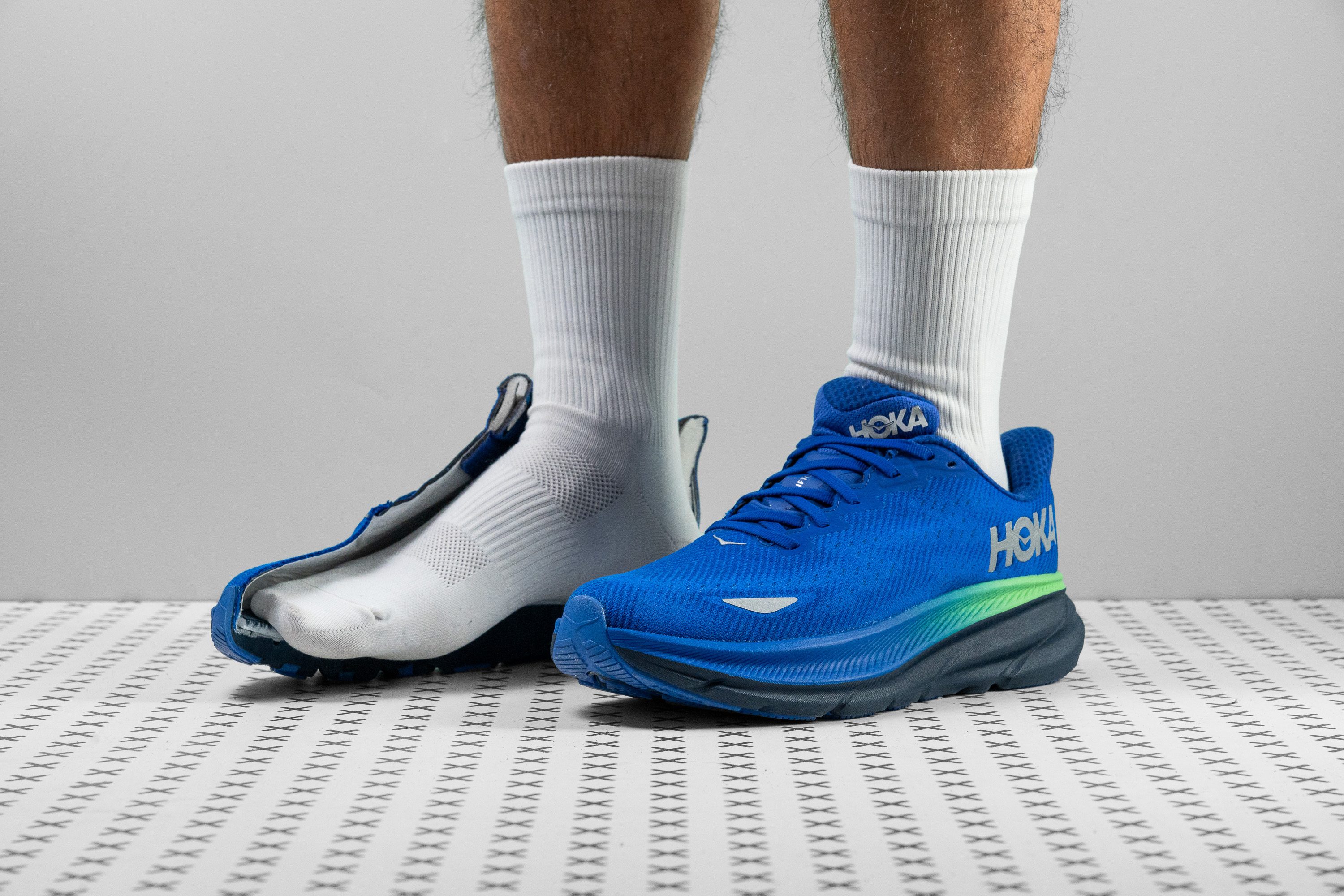Our verdict
- Top pick in best winter running shoes
- Top pick in best waterproof running shoes
Pros
- Exceptionally cushioned
- Comfortable and long-lasting upper
- Ideal for winter conditions
- Only $15 more expensive than the non-waterproof Clifton
- Still remarkably lightweight even with Gore-Tex
- Excellent for easy and moderate-paced runs
- Incredibly stable for neutral runners
- Ultra-durable Durabrasion outsole
Cons
- May be too narrow for many
- Heel-to-toe drop significantly differs from Hoka's claims
- Not enough energy return
- It needs more grip in wet surface
Audience verdict
- Top 14% in waterproof running shoes
- Top 8% in Gore-Tex running shoes
- Top 16% most popular running shoes
Comparison
The most similar running shoes compared
+ + Add a shoe | |||||
|---|---|---|---|---|---|
| Audience score | 87 Great! | 84 Good! | 74 Bad! | 89 Great! | |
| Price | £150 | £145 | £160 | £150 | |
| Pace | Daily running | Daily running | Daily running | Daily running | |
| Shock absorption | Moderate | Moderate | Moderate | - | |
| Energy return | Low | Moderate | Low | - | |
| Traction | Moderate | Moderate | High | - | |
| Arch support | Neutral | Neutral | Neutral | Neutral | |
| Weight lab Weight brand | 9.6 oz / 271g 9.6 oz / 272g | 11.1 oz / 315g 10 oz / 283g | 9.2 oz / 261g 9.1 oz / 257g | 9.6 oz / 272g 8.8 oz / 250g | |
| Drop lab Drop brand | 8.6 mm 5.0 mm | 11.9 mm 10.0 mm | 11.3 mm 8.0 mm | 9.8 mm 6.0 mm | |
| Strike pattern | HeelMid/forefoot | Heel | Heel | HeelMid/forefoot | |
| Size | True to size | True to size | Slightly small | Slightly small | |
| Midsole softness | Balanced | Soft | Soft | Firm | |
| Difference in midsole softness in cold | Small | Normal | Normal | Small | |
| Toebox durability | Good | Decent | Good | Decent | |
| Heel padding durability | Good | Good | Decent | Bad | |
| Outsole durability | Good | Bad | Good | Good | |
| Breathability | Moderate | Warm | Warm | Warm | |
| Width / fit | Narrow | Medium | Medium | Narrow | |
| Toebox width | Narrow | Medium | Medium | Medium | |
| Stiffness | Stiff | Moderate | Moderate | Moderate | |
| Torsional rigidity | Stiff | Moderate | Stiff | Moderate | |
| Heel counter stiffness | Stiff | Moderate | Stiff | Moderate | |
| Rocker | ✓ | ✓ | ✗ | ✗ | |
| Heel lab Heel brand | 37.2 mm 40.0 mm | 36.3 mm 37.0 mm | 35.4 mm 31.0 mm | 30.2 mm 24.0 mm | |
| Forefoot lab Forefoot brand | 28.6 mm 35.0 mm | 24.4 mm 27.0 mm | 24.1 mm 23.0 mm | 20.4 mm 18.0 mm | |
| Widths available | Normal | Normal | NormalWide | Normal | |
| Orthotic friendly | ✓ | ✓ | ✓ | ✓ | |
| Season | WinterAll seasons | Winter | Winter | Winter | |
| Removable insole | ✓ | ✓ | ✓ | ✓ | |
| Ranking | #165 Top 44% | #232 Bottom 39% | #367 Bottom 4% | #94 Top 25% | |
| Popularity | #59 Top 16% | #133 Top 35% | #212 Bottom 44% | #89 Top 24% |
Who should buy
We highly recommend the Clifton 9 GTX for:
- Fans of Hoka seeking a waterproof running shoe for wet conditions.
- Anyone looking for a cushioned daily trainer enhanced with Gore-Tex.
- Runners in the hunt for a lightweight, waterproof shoe that isn't designed specifically for trail running.
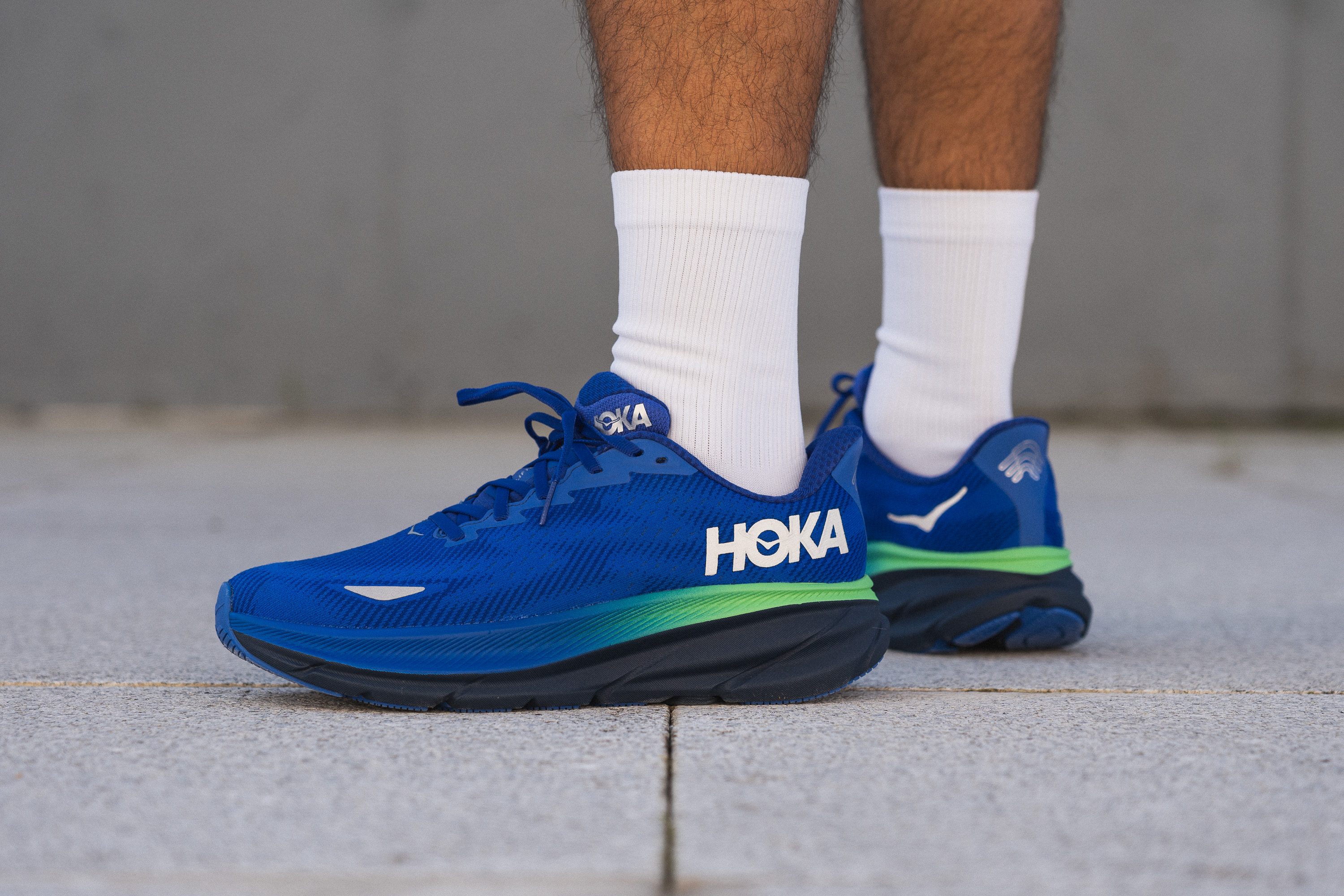
Who should NOT buy
While this shoe offers decent breathability through the tongue, we hold the view that it's not the best choice for summer runs. The toebox is completely sealed and lacks ventilation. For warmer weather, opt for the regular Clifton 9, which is also lighter and £20 cheaper.
Furthermore, if you're planning mountain adventures, our conclusion is that it's better to skip the Clifton. Although it can handle fire roads or smooth trails occasionally, there are several superior trail running shoes with Gore-Tex. Consider options like the Salomon Speedcross 6 GTX or the Hoka Speedgoat 5 GTX for a more suitable, trail-proof experience.
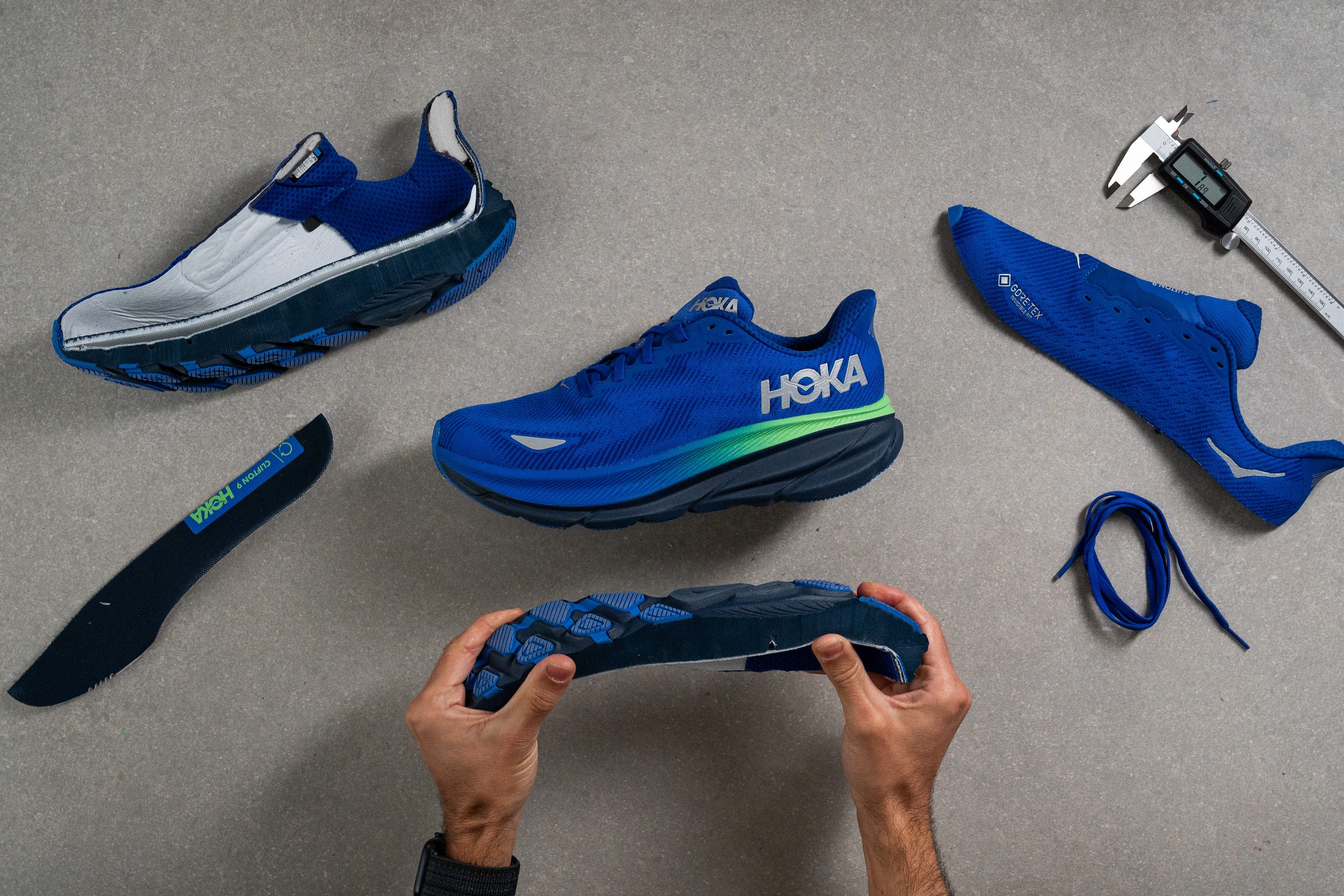
Cushioning
Shock absorption
The Clifton 9 GTX features a generous stack height, but the CMEVA foam doesn’t absorb impact like newer materials. We measured just 115 SA in the heel, though it slightly improves in the forefoot with 113 SA despite the lower stack.
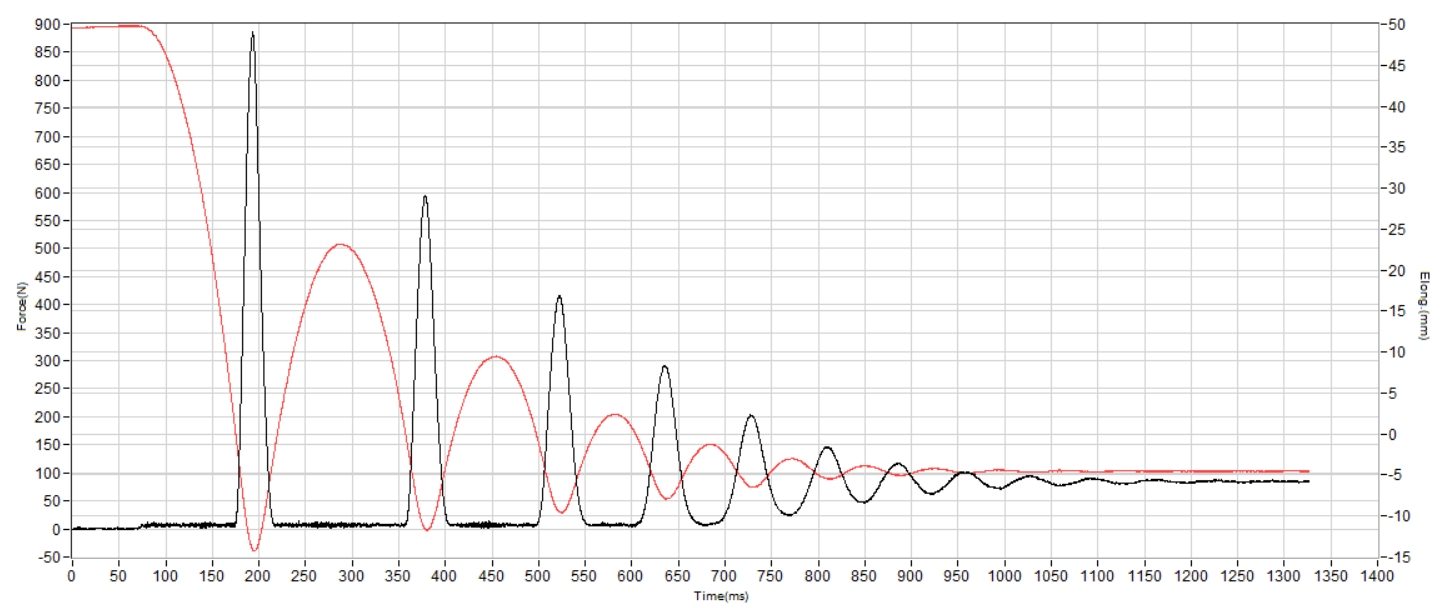
| Hoka Clifton 9 GTX | 115 SA |
| Average | 130 SA |
Energy return
As expected from CMEVA foam, energy return is underwhelming. We measured only 50.8%, a figure that clearly needs improvement. That said, if you're eyeing this GTX shoe for light jogs or daily wear, it shouldn't be a major concern.
| Hoka Clifton 9 GTX | 50.8% |
| Average | 58.6% |
Heel stack
As a modern daily trainer, we expected decent cushioning in the heel, and that's exactly what we found.
With a heel stack height of 37.2 mm, the Clifton guarantees a comfortable ride for all runners, particularly those who are heel strikers.
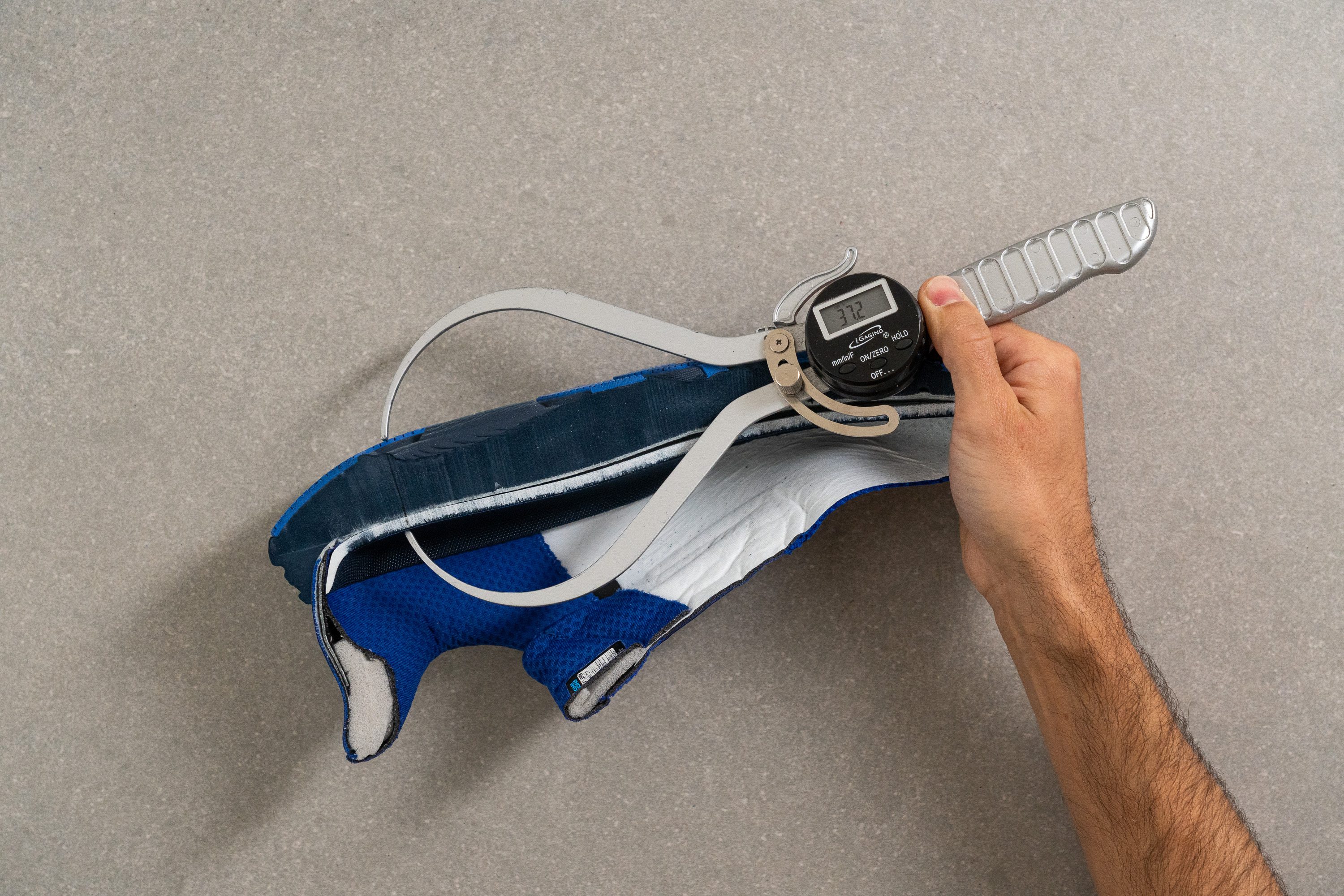
| Hoka Clifton 9 GTX | 37.2 mm |
| Average | 34.8 mm |
Forefoot stack
In the forefoot, we measured a stack height of 28.6 mm, which is more than the average shoe.
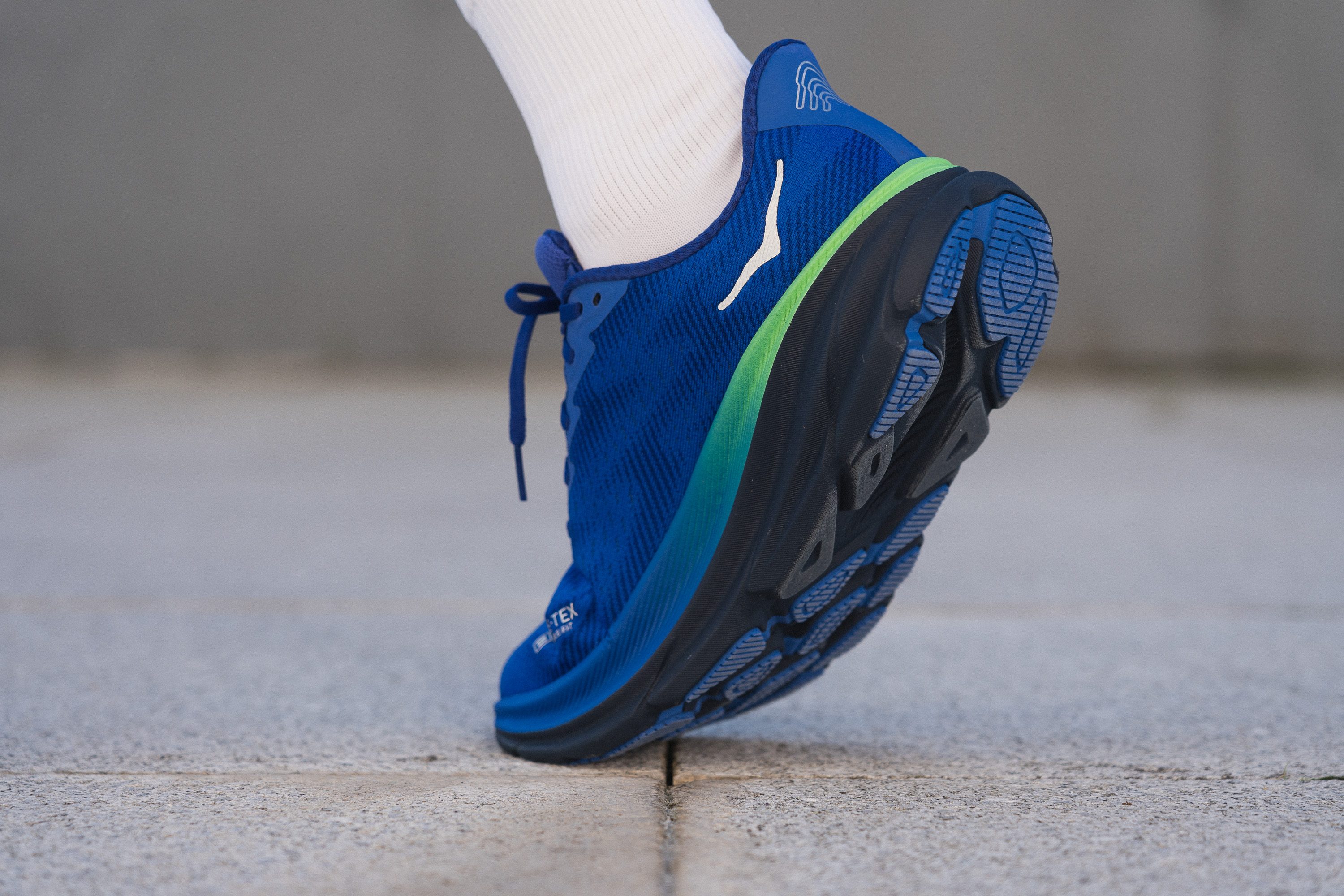
This guarantees two things: ample cushioning for those long runs in the rain and no ground feel at all.
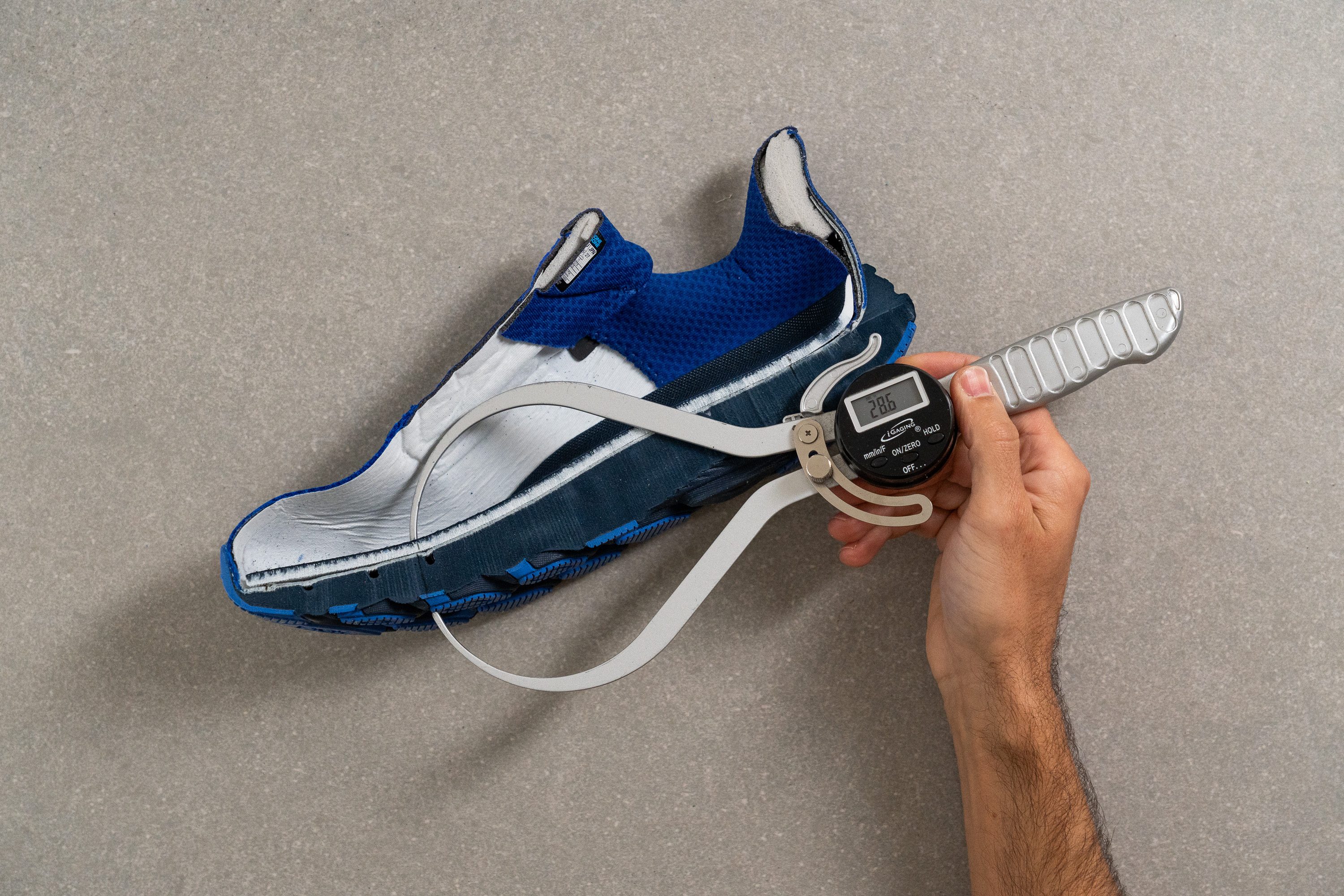
| Hoka Clifton 9 GTX | 28.6 mm |
| Average | 26.2 mm |
Drop
This results in an 8.6-mm heel-to-toe drop, quite a departure from the 5-mm drop claimed by the brand. However, this discrepancy isn't unusual for us, as we often find Hoka's measurements significantly different from ours.
Why the difference? We measure every shoe according to the World Athletics guidelines, but many brands don't follow these standards. We've explained this in full detail in this guide.
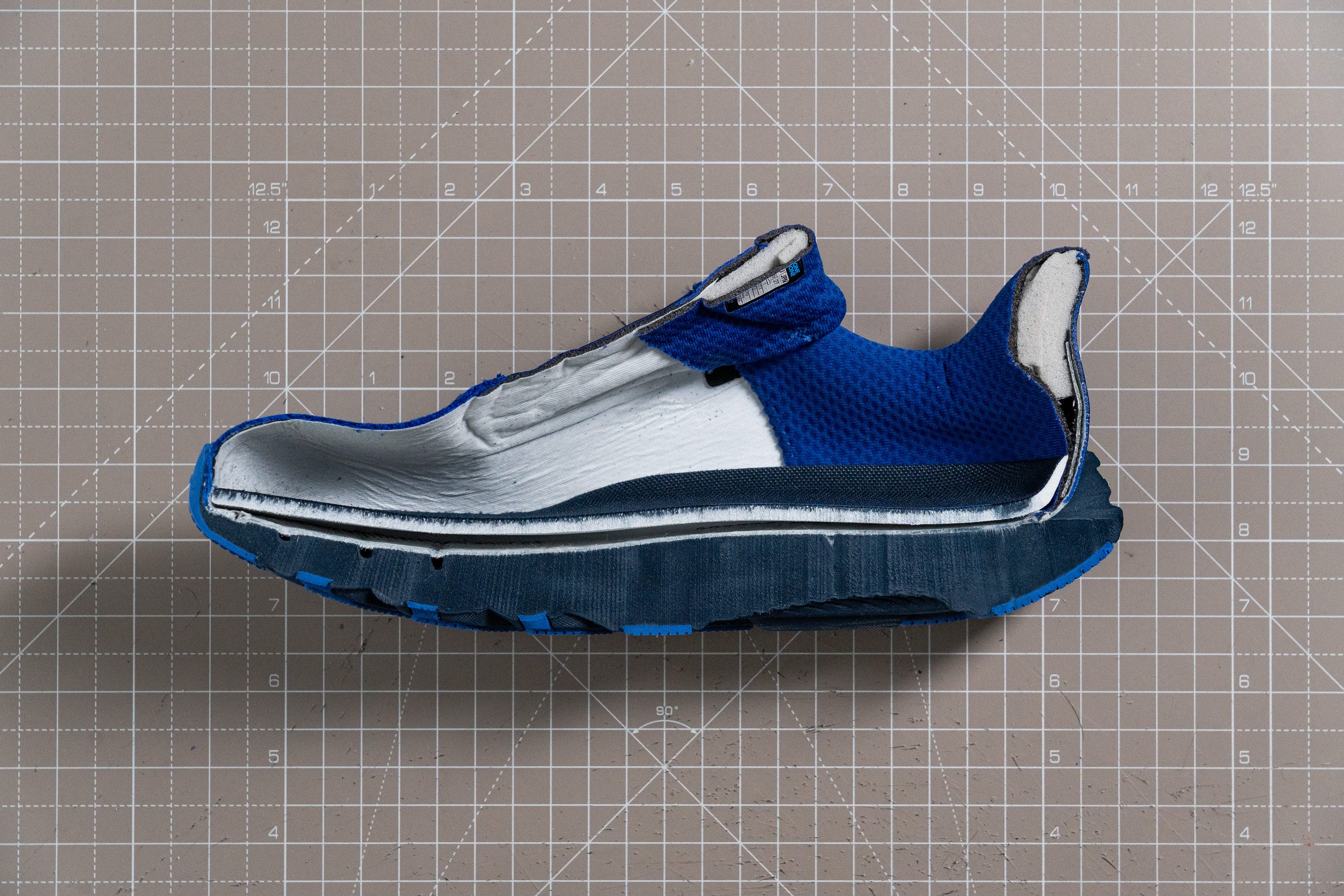
| Hoka Clifton 9 GTX | 8.6 mm |
| Average | 8.6 mm |
Midsole softness
Hoka has consistently designed the Clifton as a balanced shoe in terms of midsole softness, and the 9 GTX is no exception.
With a CMEVA midsole hardness of 23.9 HA, it doesn't feel too soft or too firm, just balanced!
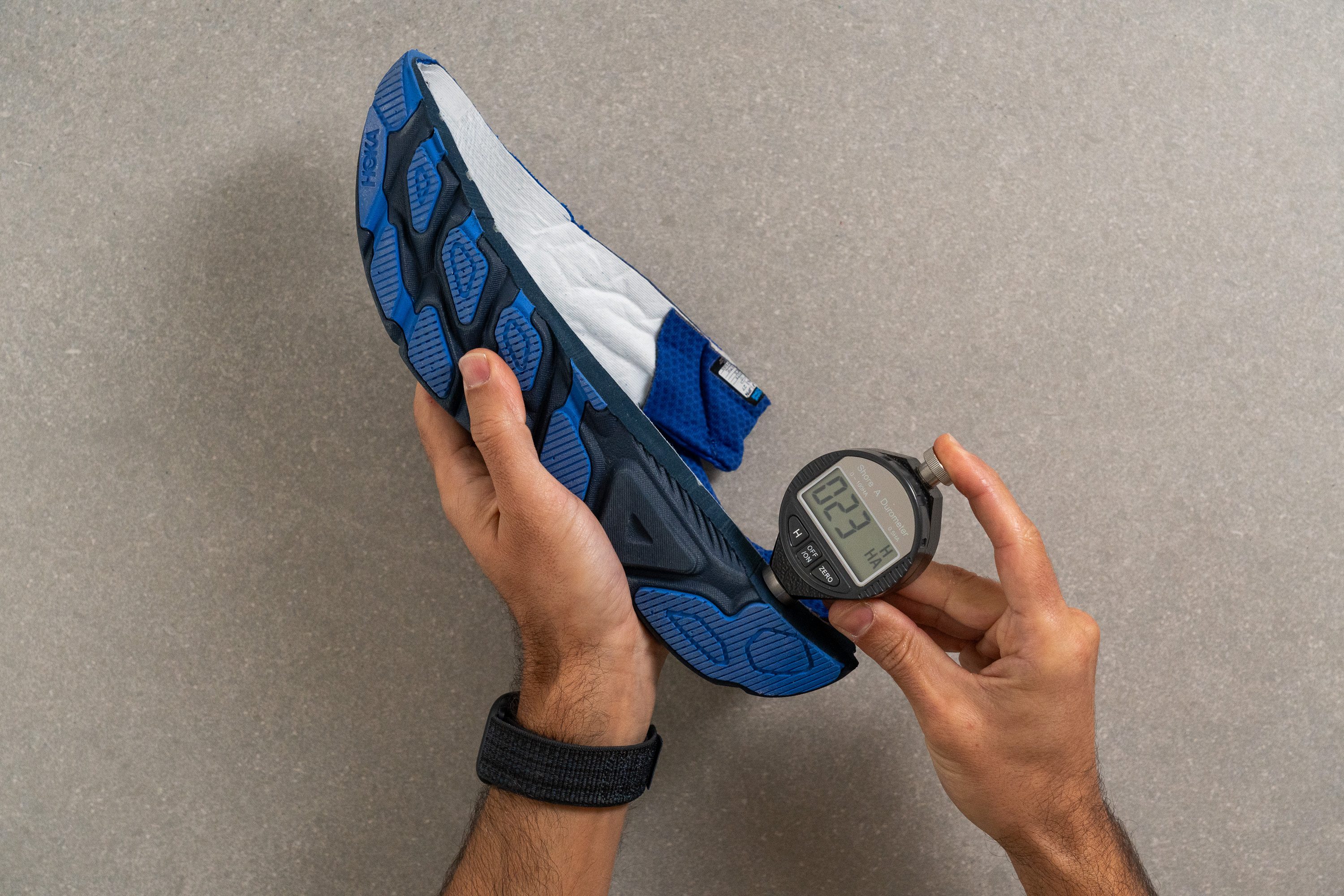
| Hoka Clifton 9 GTX | 23.9 HA |
| Average | 20.4 HA |
Size and fit
Size
Hoka Clifton 9 GTX fits true to size (107 votes).
Internal length
| Hoka Clifton 9 GTX | 267.0 mm |
| Average | 269.4 mm |
Width / Fit
The standard Clifton 9 already offers a snug fit, and the GTX version takes it a step further. To assess the difference, we crafted a custom gel mould, enabling precise measurements here in our lab.
Using callipers, we measured 91.5 mm at the widest part—0.7 mm narrower than the regular Clifton 9. This positions the GTX among the most snug-fitting shoes on the market, ideal for runners with narrow feet.
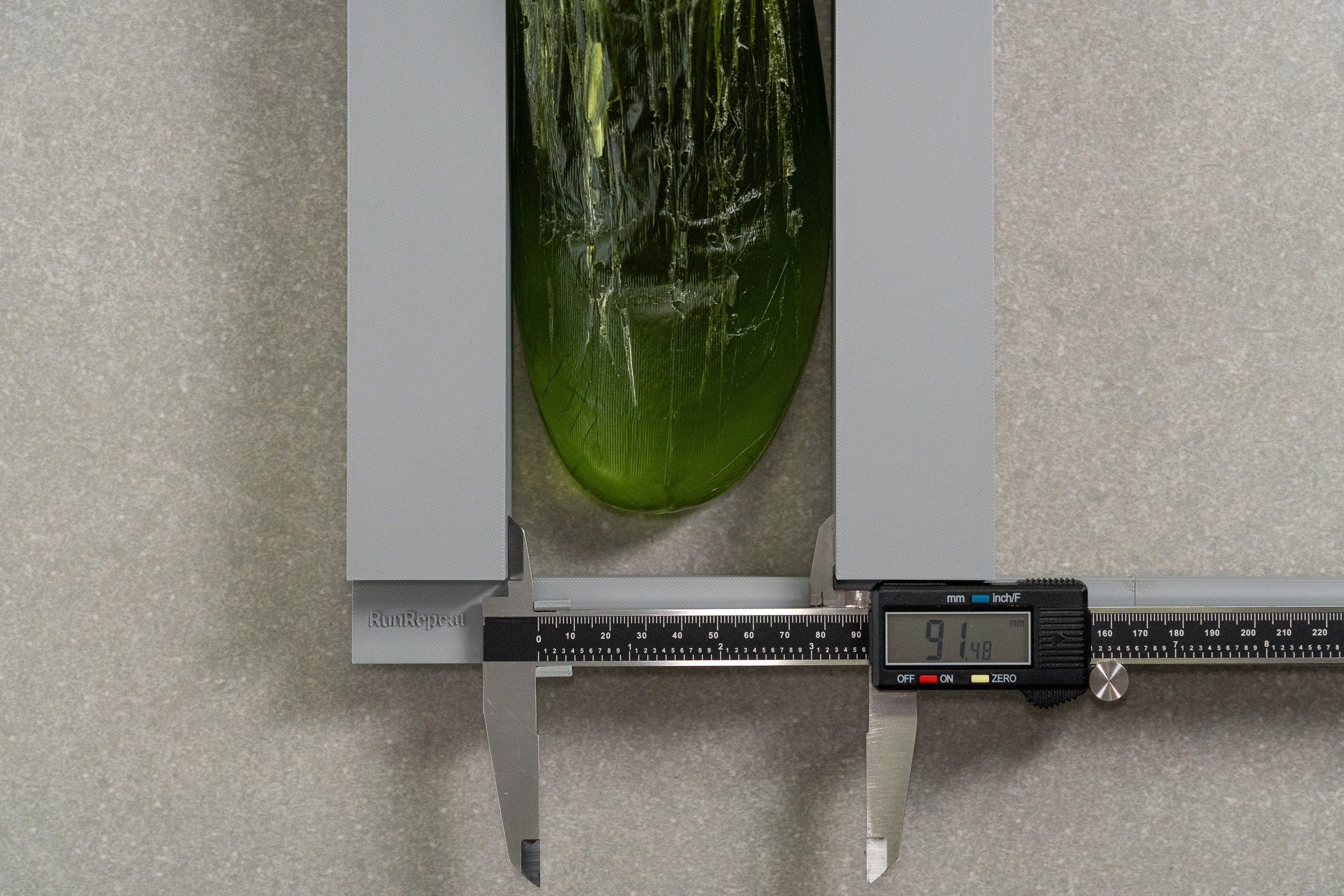
| Hoka Clifton 9 GTX | 91.5 mm |
| Average | 95.1 mm |
Toebox width
The big toe area features a sharply tapered design, measuring only 69.4 mm with our callipers. This shape definitely excludes the shoe as an option for runners with wide feet.
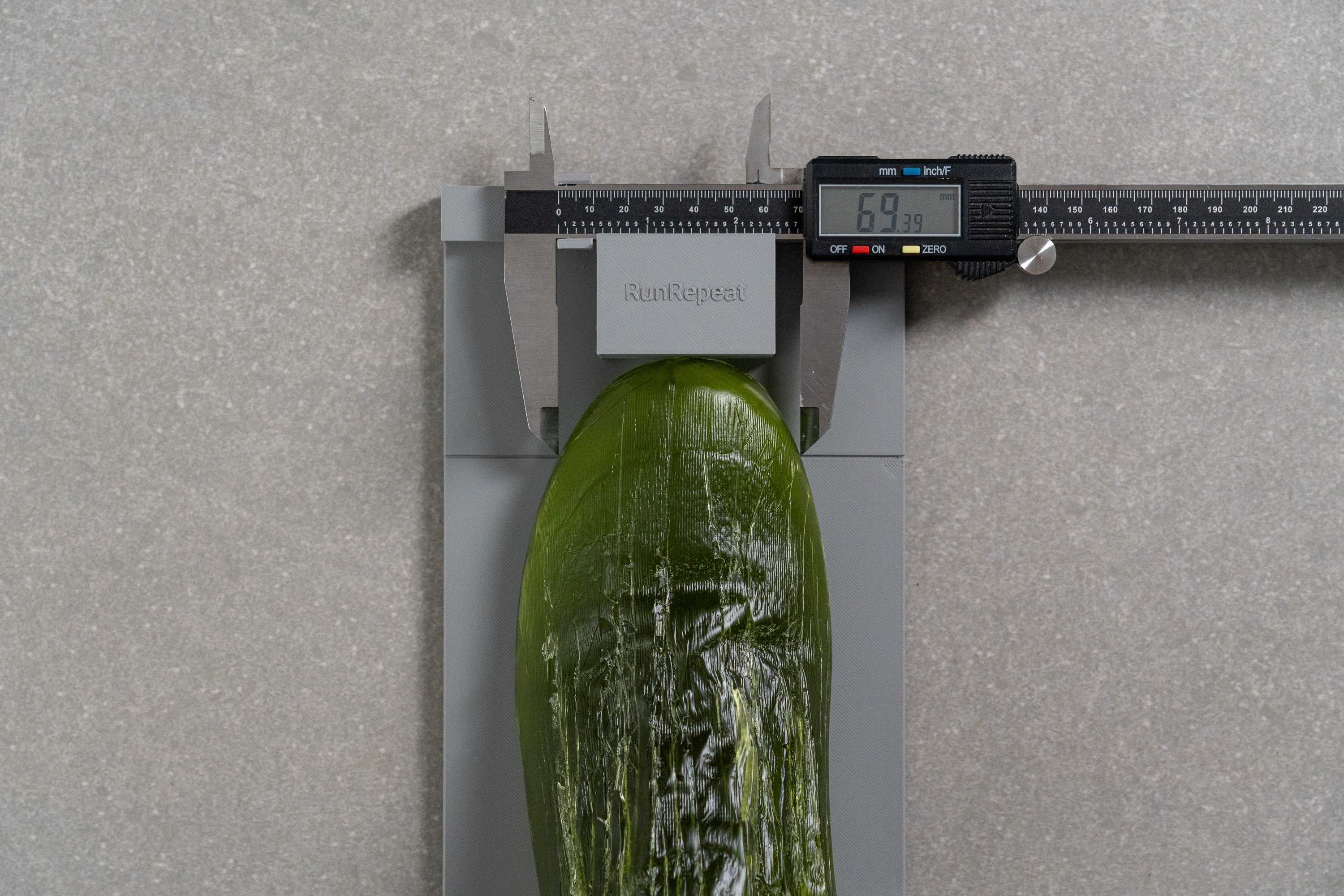
| Hoka Clifton 9 GTX | 69.4 mm |
| Average | 73.3 mm |
Toebox height
We measured the toe area height at 26.2 mm, providing adequate room for upward movement. To be honest, this was slightly more than anticipated, especially given the lower results from the first two measurements.
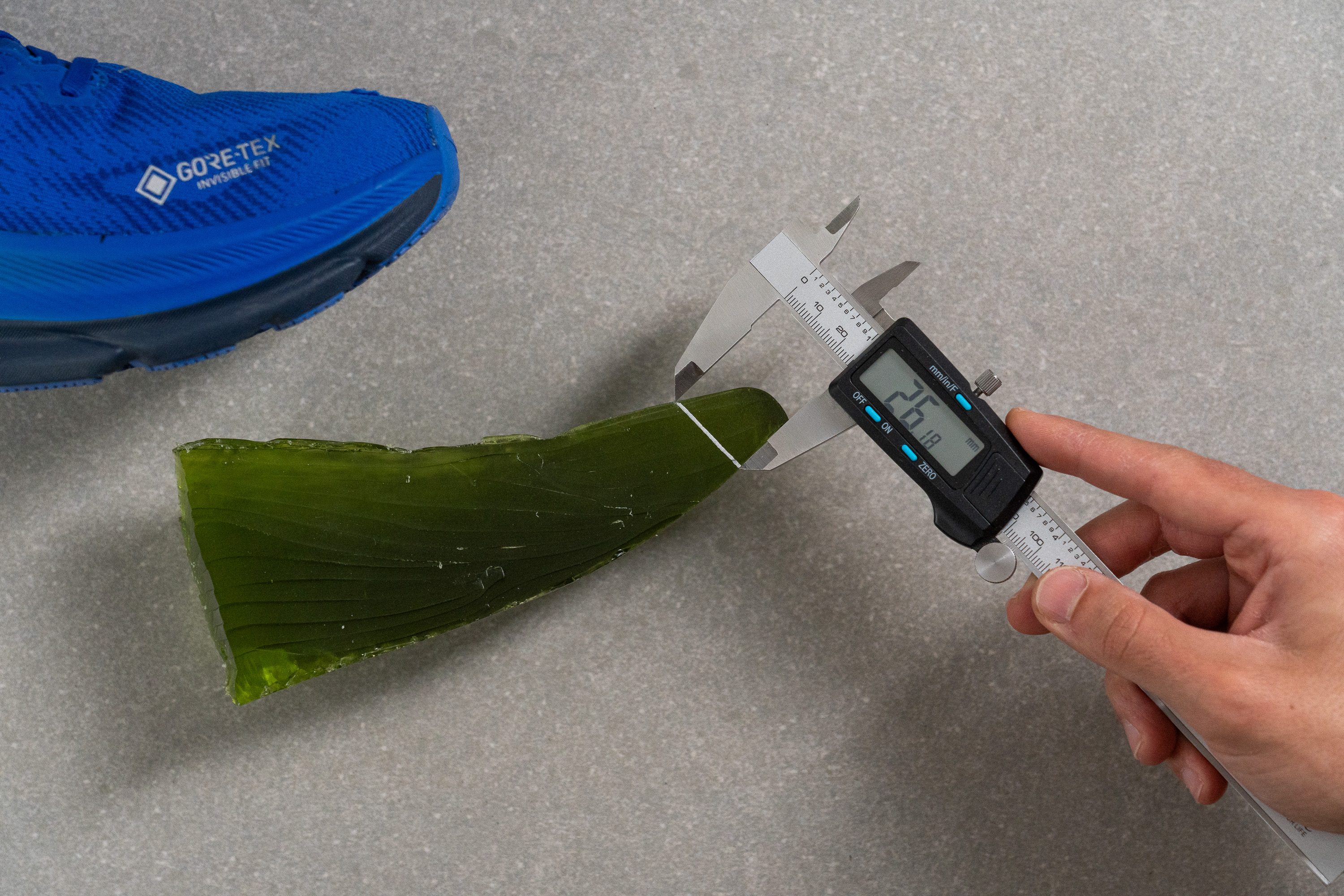
| Hoka Clifton 9 GTX | 26.2 mm |
| Average | 27.0 mm |
Traction / Grip
Traction test
We tested the Clifton 9 GTX on wet concrete—perfect for a rain-ready trainer. It posted a 0.38, edging out the standard version’s 0.33, but the grip still needs improvement when roads turn slick. This result implies that while dry grip remains solid, wet performance is just average.
From our perspective, any weather-protective Gore-Tex shoe should deliver more slip-resistant traction for runners braving downpours or snowy conditions.
| Hoka Clifton 9 GTX | 0.38 |
| Average | 0.49 |
Outsole design
The Clifton 9 GTX features a more rugged outsole than the standard version, with Hoka filling in several of the cutouts found on its non-waterproof sibling for added protection and grip.
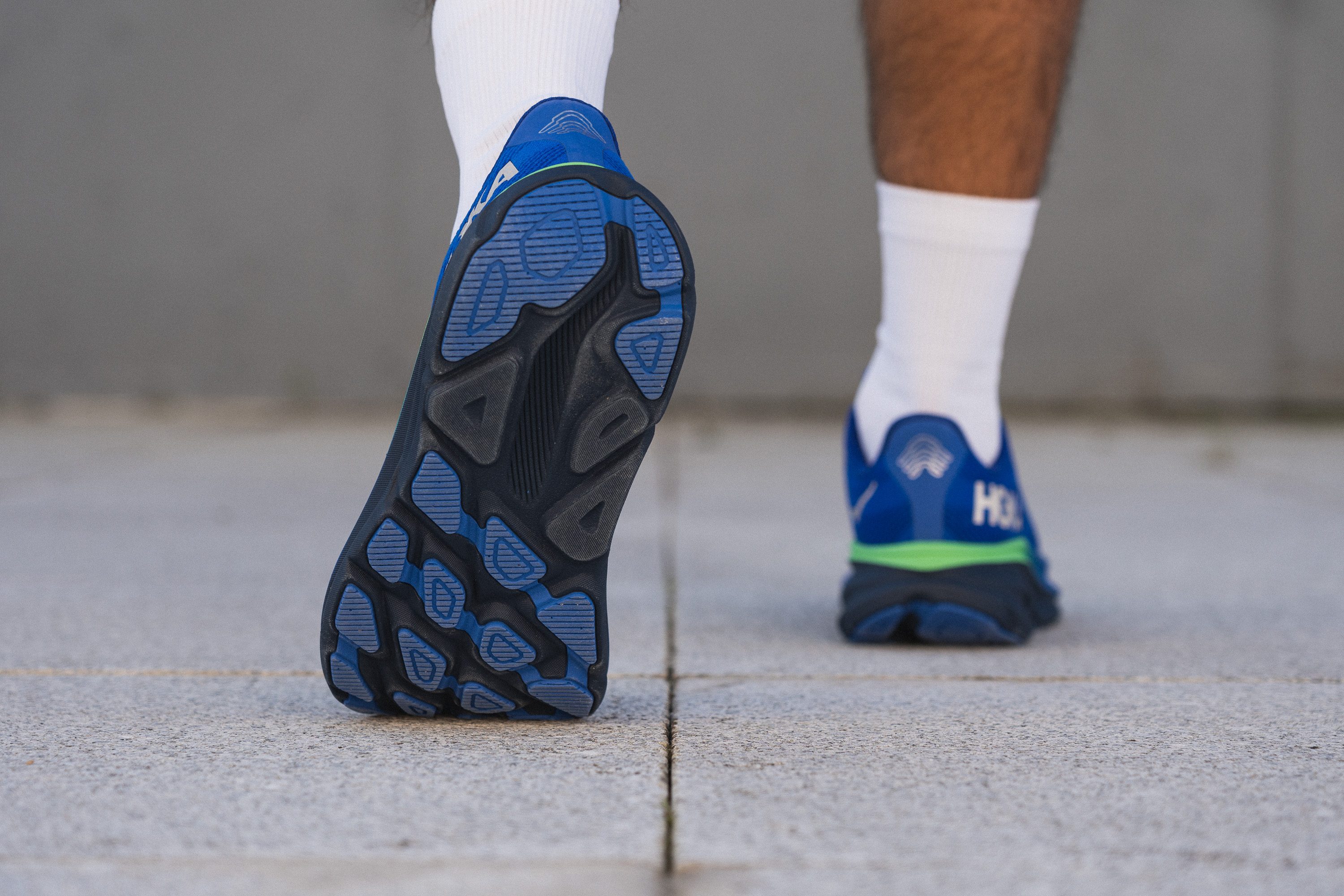
Flexibility / Stiffness
In our 90-degree bend test, we had to apply 22.4N of force to bend the shoe. Based on our findings, the Gore-Tex membrane adds noticeable stiffness—it’s 27% more rigid than the non-waterproof version.
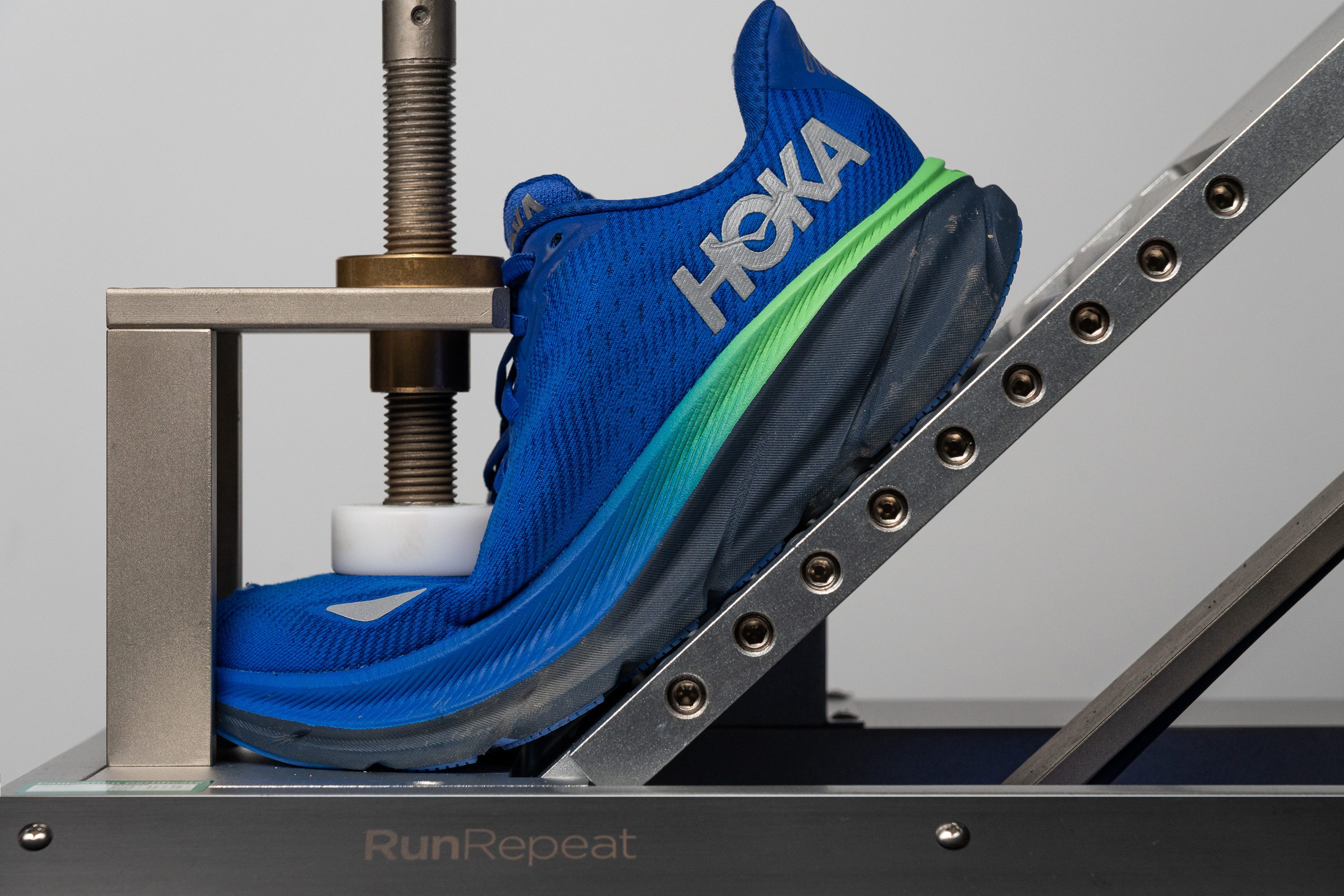
| Hoka Clifton 9 GTX | 22.4N |
| Average | 15.3N |
Stiffness in cold
We conducted the same bending test to check if the underfoot stiffness changed after spending 20 minutes in the freezer. In this scenario, the shoe became noticeably stiffer, requiring 38.0N of force.
| Hoka Clifton 9 GTX | 38.0N |
| Average | 36.2N |
Stiffness in cold (%)
That's a 29.1% increase, which is better than the average, but still a significant change. It will make the shoe feel stiffer in harsh, teeth-grinding cold conditions.
| Hoka Clifton 9 GTX | 29% |
| Average | 33% |
Weight
One common worry we all share in the lab about Gore-Tex shoes is the potential weight increase due to the added Gore-Tex membrane.
Yet, the Clifton 9 GTX pleasantly surprised us, weighing in at just 9.6 oz (271g) on our scale. This is lighter than most cushioned daily trainers on the market, even with its waterproofing.
It's also a mere 0.9 oz heavier than the standard version, so we're thrilled to report that waterproofing adds less than an ounce to the shoe's weight. This seems like a more than fair trade-off for those who need this feature.
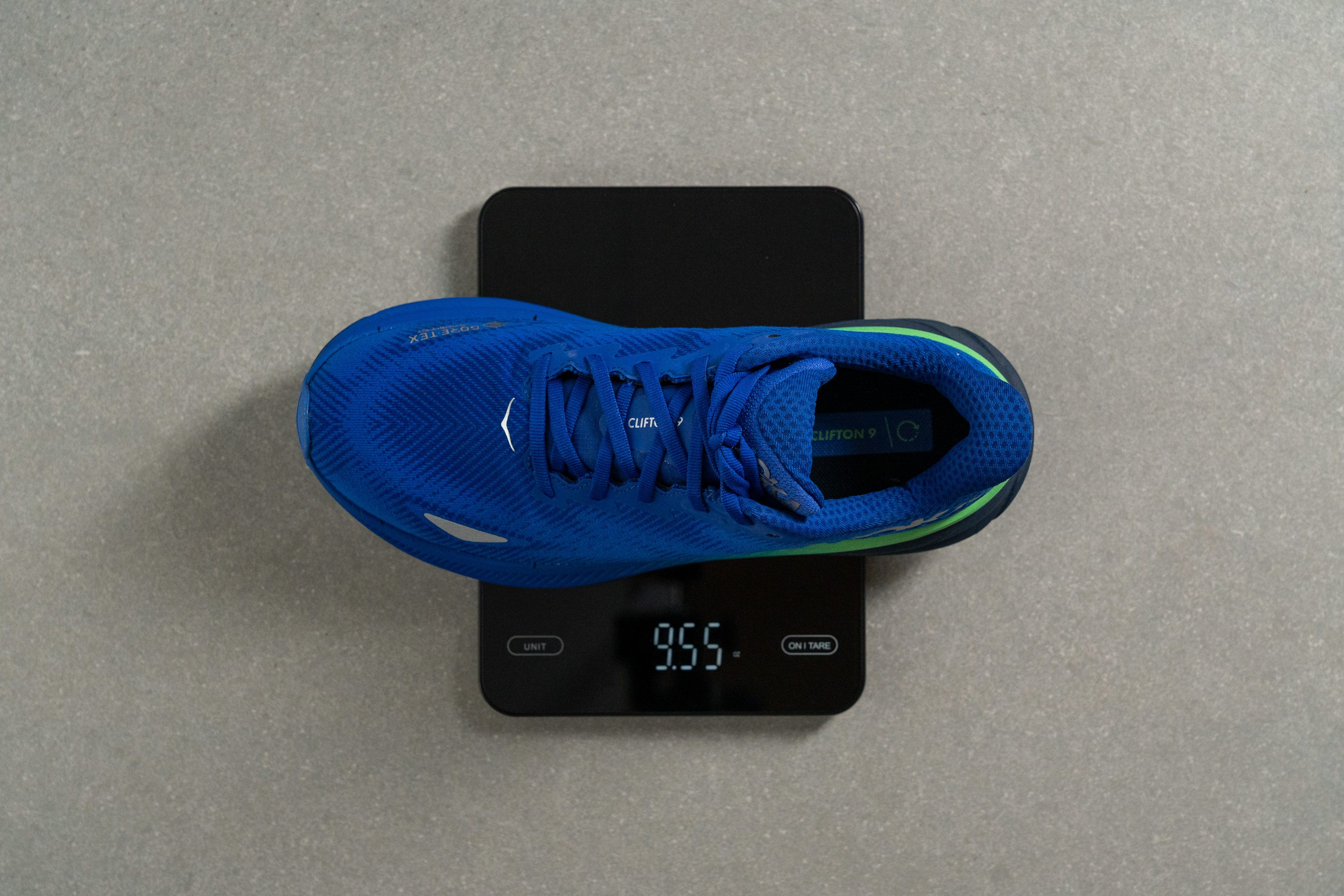
| Hoka Clifton 9 GTX | 9.6 oz (271g) |
| Average | 9.3 oz (264g) |
Breathability
Gore-Tex is a membrane designed to let air and water vapour escape from the shoe, while preventing liquid water from getting in—as we carefully explained in our guide about uppers. It does this using tiny ventilation holes that are smaller than water particles.
In practice, however, our lab analysis show that Gore-Tex shoes have almost no ventilation. Yet, the Clifton 9 GTX scored a 3 out of 5 in our breathability test. How did they do it? Well, Hoka crafted the shoe to let air out through the tongue, as shown in the video above.
However, be aware that this shoe might feel warm in the summer. The overall breathability score of 3 out of 5 reflects the general airflow, but the toebox tends to be warmer compared to running shoes with effective ventilation in this area.
When we moved the cut-in-half shoe over the light, it became clear that it blocks all airflow. There's simply no air movement, but we wanted to confirm this with the microscope.
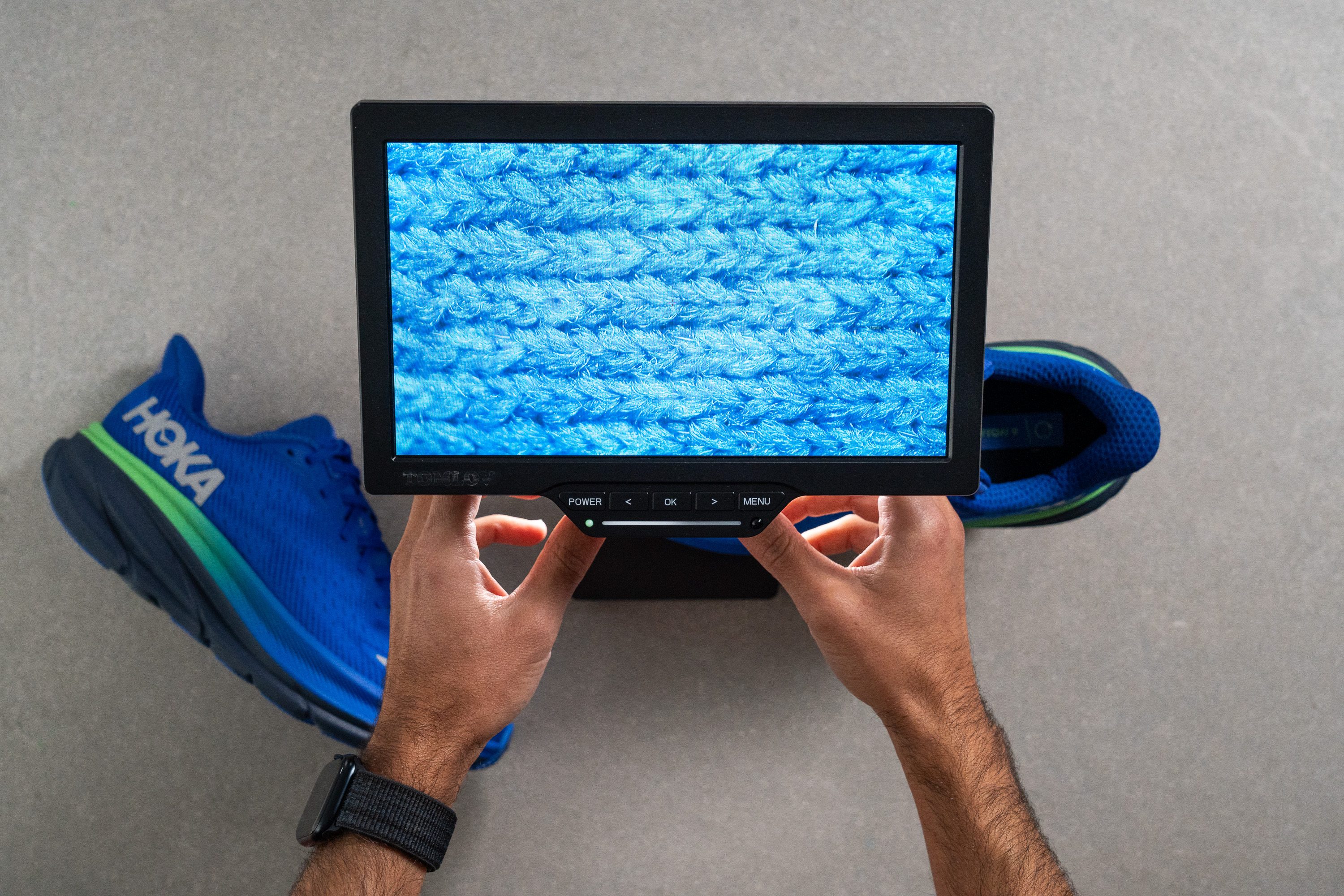
Here, our initial thoughts were confirmed. The knit looks incredibly thick and dense, with no visible holes for air to escape.
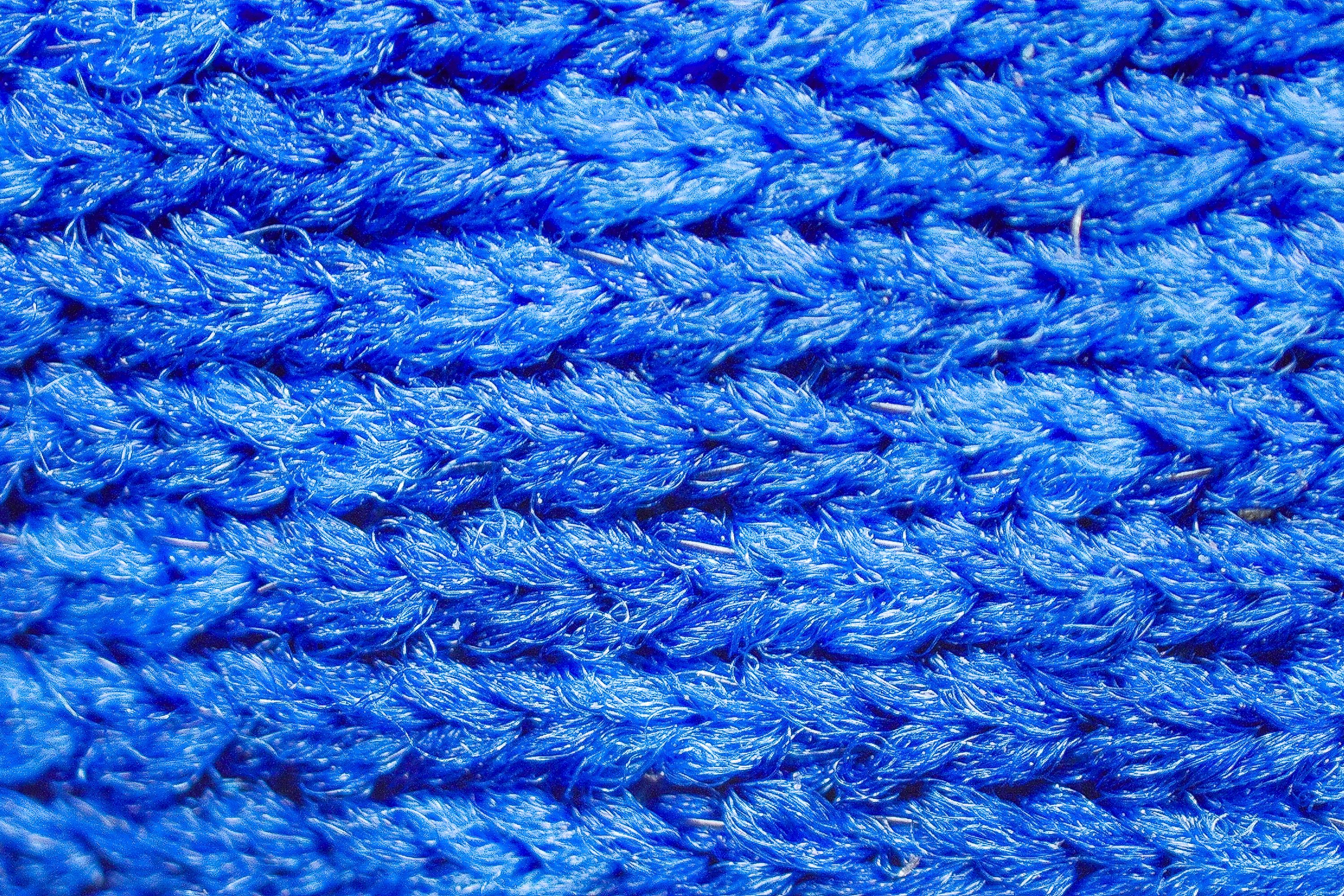
Hoka used a thick knit combined with a GORE-TEX Invisible Fit membrane in the Clifton 9 GTX, as we found out by inspecting the cut upper.
| Hoka Clifton 9 GTX | 3 |
| Average | 3.7 |
Stability
With its average rubber hardness, we anticipated typical durability from the Clifton 9 GTX.
However, our Dremel test revealed a pleasant surprise: only a minimal 0.5-mm indentation in the outsole. This positive outcome is a clear indicator of fantastic durability.
Lateral stability test
The Clifton 9 GTX earns our nod for stability, ideally suited for neutral runners and those with mild stability needs.
Let's explore how Hoka accomplished this great level of stability.
Torsional rigidity
From our first strides, we noticed the Clifton was incredibly rigid, a feeling that our manual assessment confirmed. We gave it a 5 out of 5 in rigidity.
This kind of result is usually seen in carbon-plated shoes, yet the Clifton doesn't have one.
| Hoka Clifton 9 GTX | 5 |
| Average | 3.5 |
Heel counter stiffness
The heel counter is also quite stiff, scoring a 4 out of 5. Why did Hoka choose this design? It seems that they traded a bit of comfort for enhanced guidance in the stride, particularly beneficial for heel strikers.
Thankfully, the heel counter is exceptionally well-padded, so it shouldn't cause any problems for most runners. The only noticeable issue is that the heel counter extends further laterally and can pull slightly when lacing the shoe tightly.
| Hoka Clifton 9 GTX | 4 |
| Average | 2.9 |
Midsole width - forefoot
Another impressive trick up Hoka's sleeve for boosting stability is the midsole width. Measuring a vast 120.9 mm, the Clifton 9 GTX offers an immense width that effortlessly absorbs those slightly off-balance landings.
What really amazes us is how the shoe manages to be so light despite its dimensions...
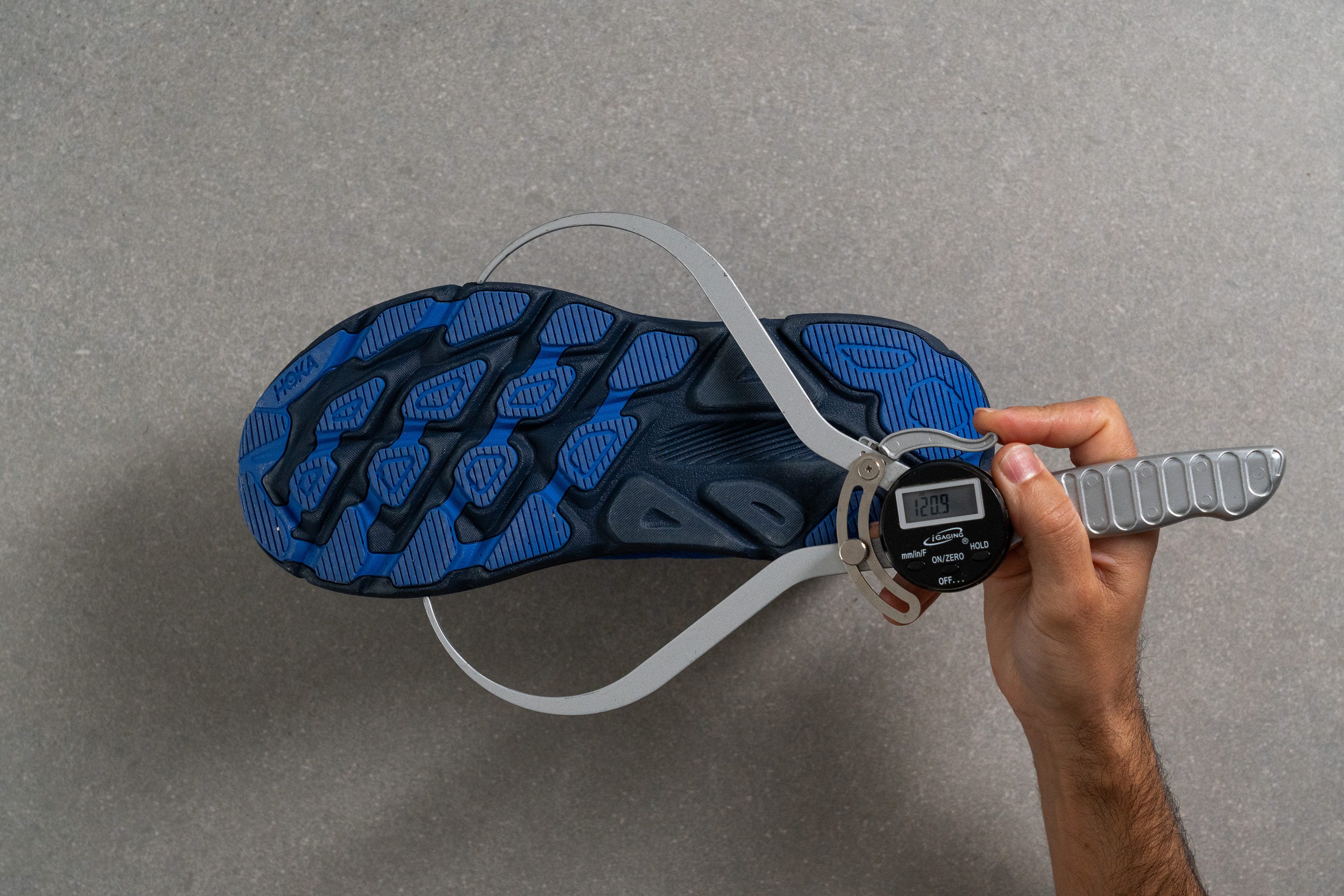
| Hoka Clifton 9 GTX | 120.9 mm |
| Average | 114.4 mm |
Midsole width - heel
And the heel follows the same design pattern as the forefoot, measuring a hyper-wide 97.2 mm.
This, along with the stiff heel counter and the rigid platform, are the key reasons why the shoe feels incredibly supportive.
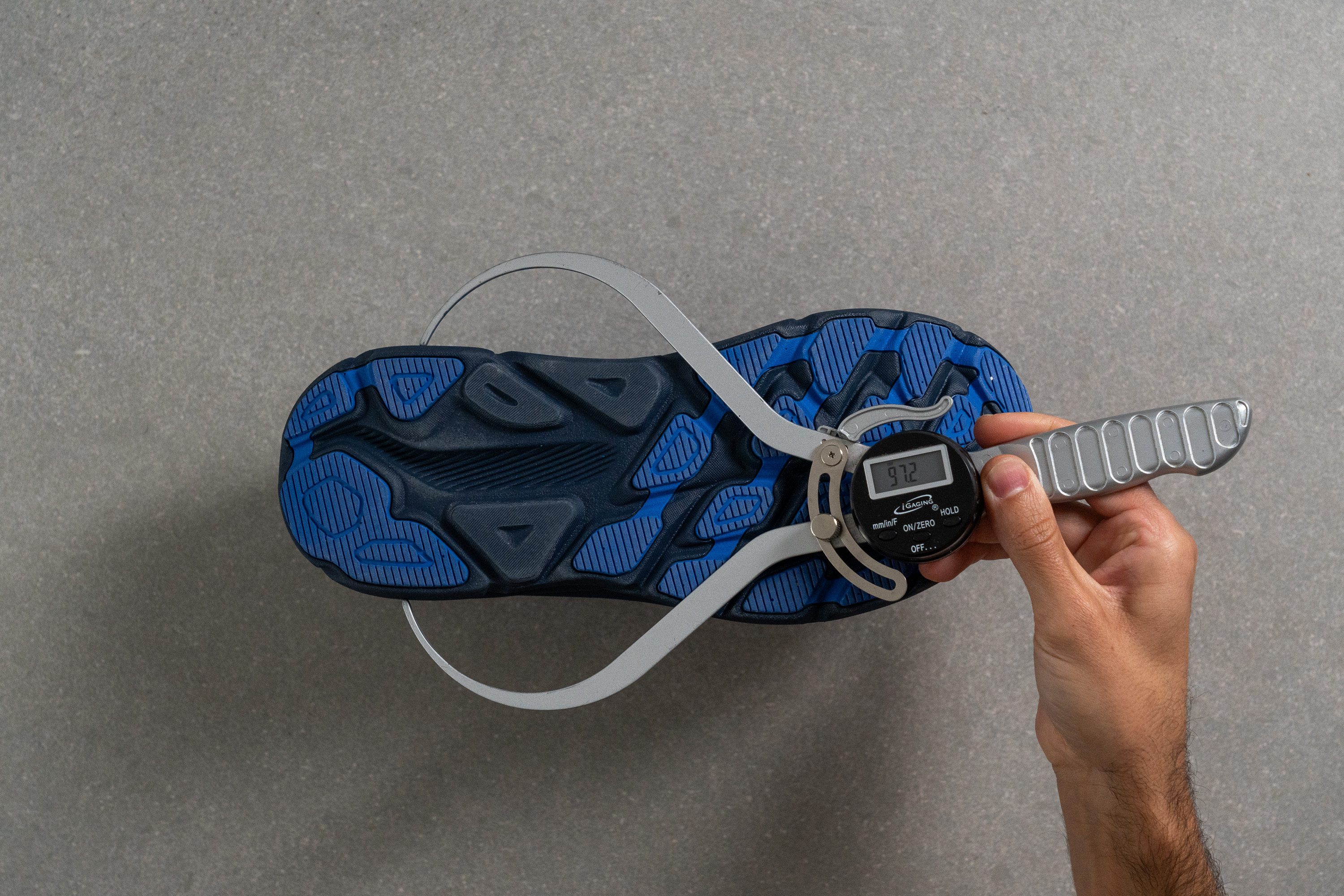
| Hoka Clifton 9 GTX | 97.2 mm |
| Average | 90.6 mm |
Durability
Toebox durability
One of the standout perks of GTX uppers is their ability to enhance durability, thanks to the additional layer they bring to the shoe.
The Clifton 9 GTX perfectly exemplifies this benefit. During our first Dremel test, where we used the tool at 5K RPM with a force of 3.2N, we noticed only minimal damage to the jacquard knit upper.
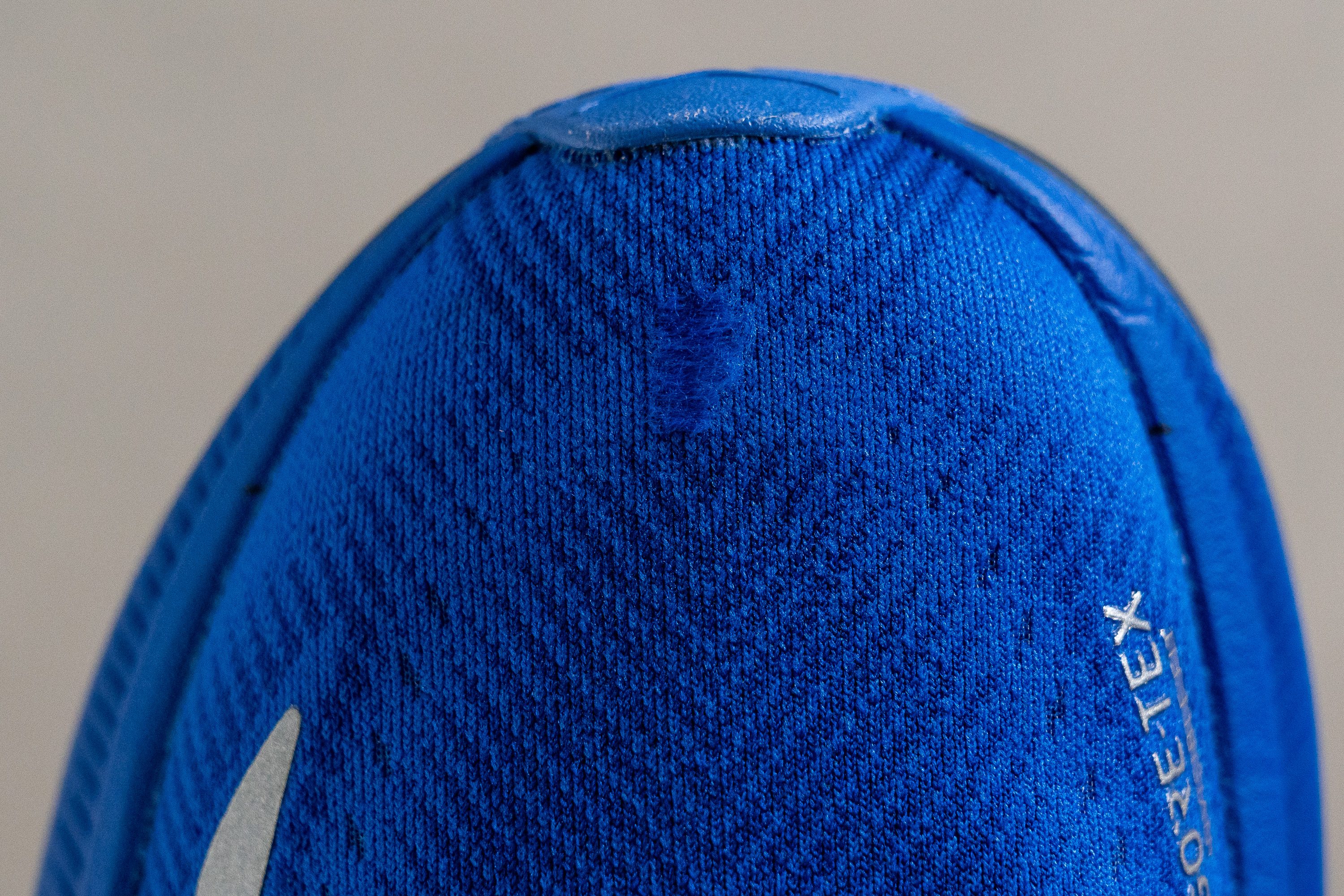
| Hoka Clifton 9 GTX | 4 |
| Average | 2.6 |
Heel padding durability
But hold on, because the heel area outperformed the toebox in our rigorous back-to-back Dremel tests.
Scoring a perfect 5 out of 5, it's highly unlikely that any runner will be able to rub or wear down the heel area.
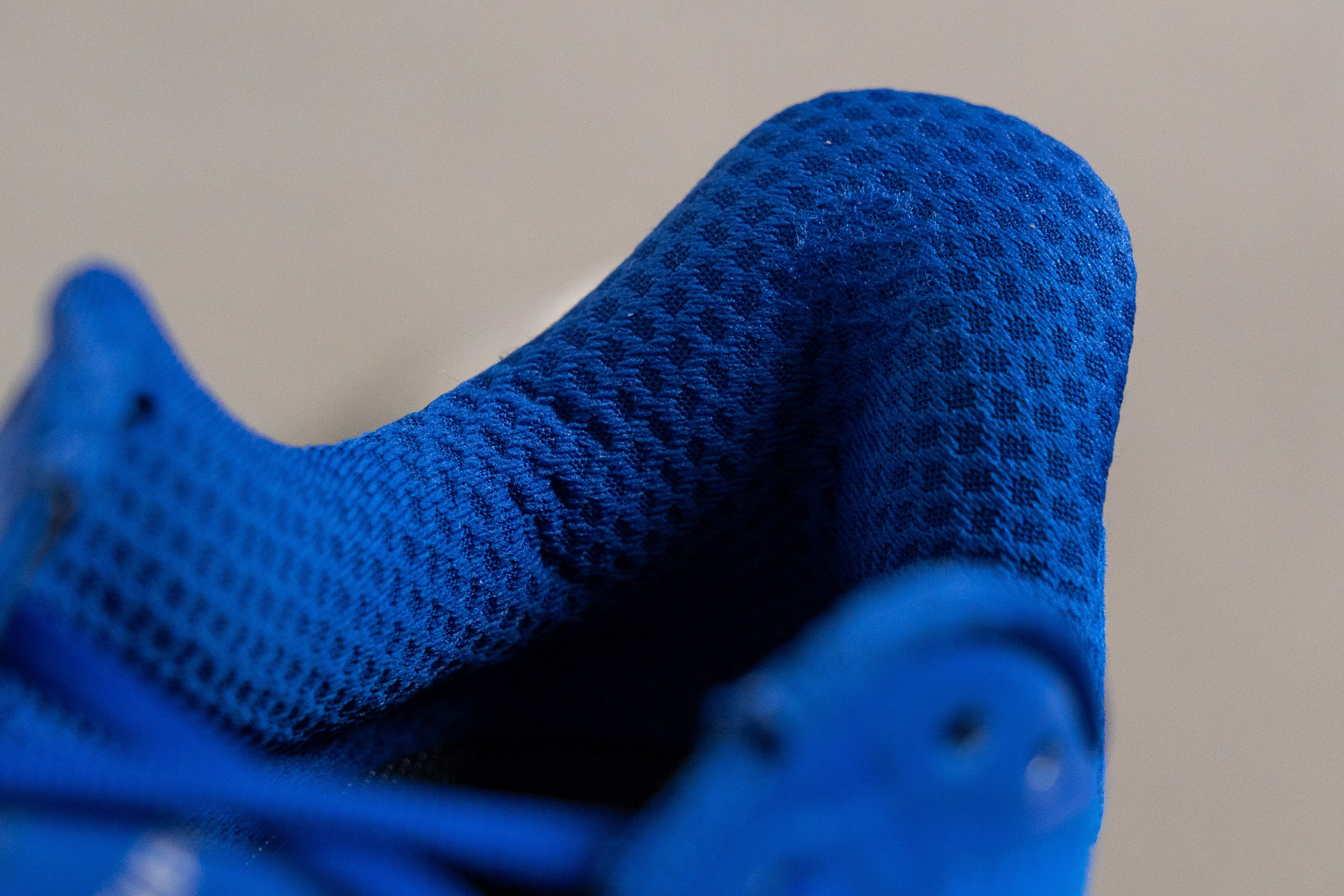
| Hoka Clifton 9 GTX | 5 |
| Average | 3.4 |
Outsole hardness
So far, we're really impressed with the Clifton 9 GTX's durability performance. Now, let's take a closer look at the outsole.

The outsole design in the waterproof version is identical to the regular edition.
First, we were curious about the hardness of the Durabrasion rubber used by Hoka. Using our durometer on the Shore C scale, we measured a hardness of 79.1 HC. This result is right in line with the average, and slightly harder than the regular Clifton 9 (76.0 HC).
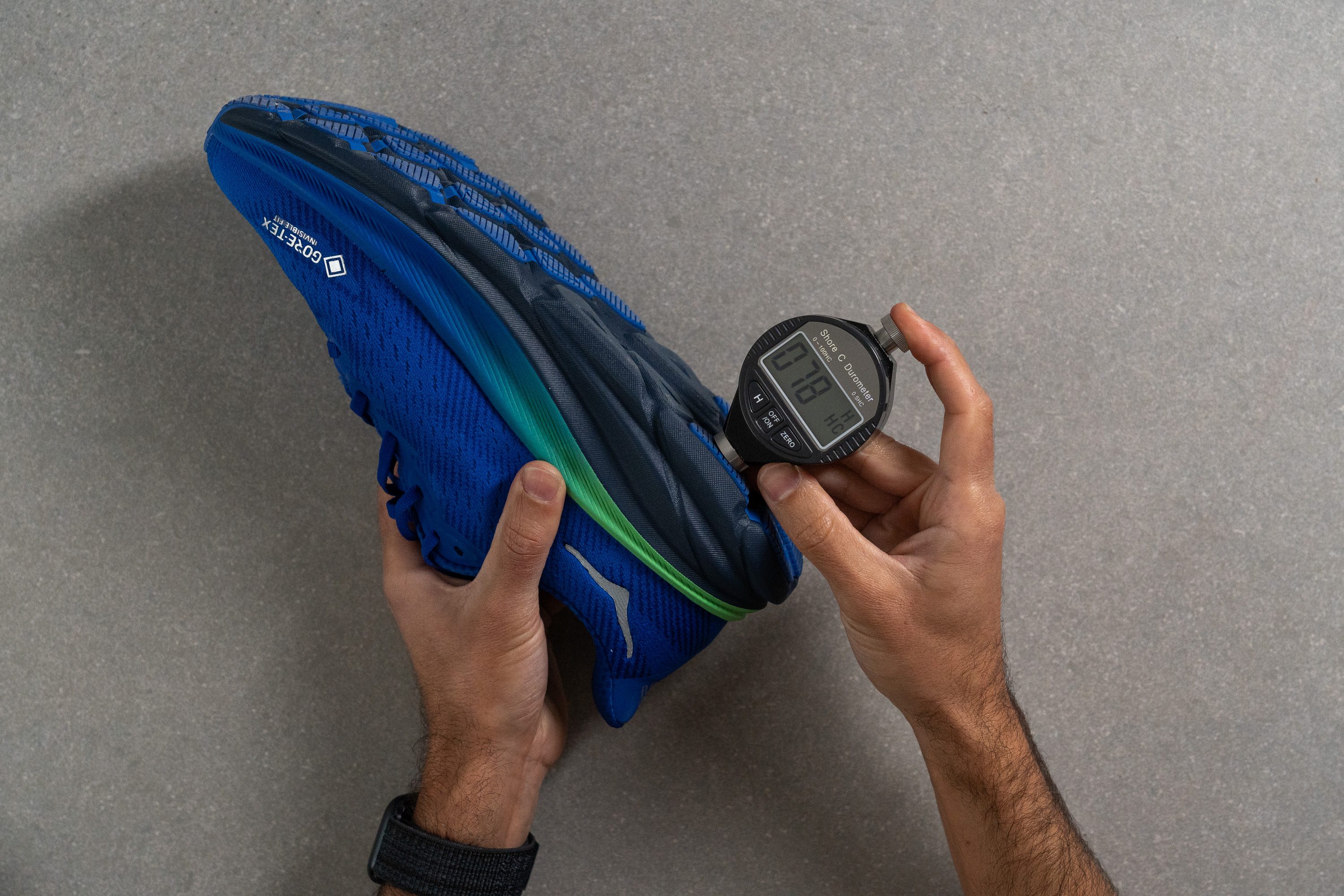
| Hoka Clifton 9 GTX | 79.1 HC |
| Average | 79.2 HC |
Outsole durability
With its average rubber hardness, we anticipated typical durability from the Clifton 9 GTX.
However, our Dremel test revealed a pleasant surprise: only a minimal 0.5-mm indentation in the outsole. This positive outcome is a clear indicator of fantastic durability.
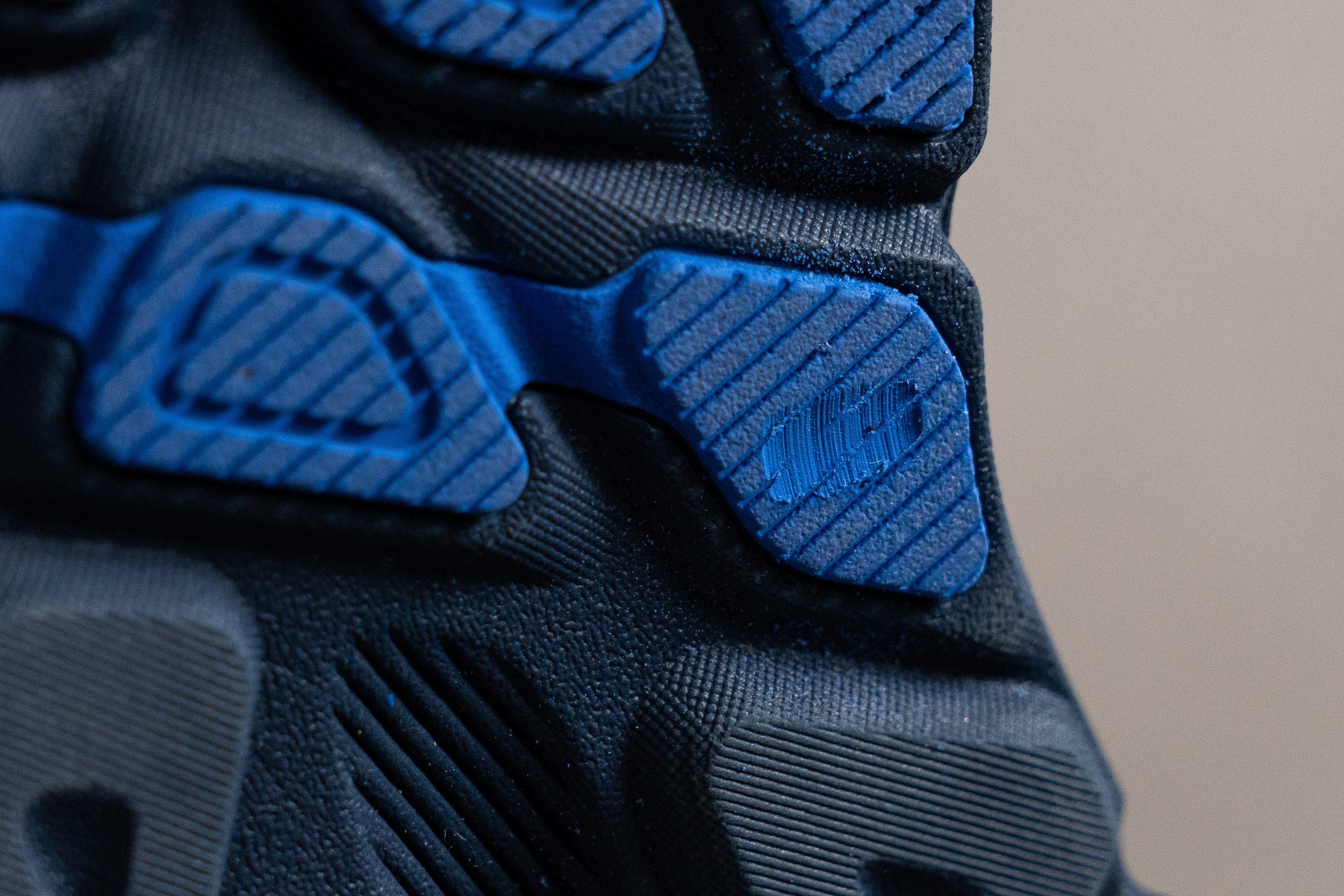
| Hoka Clifton 9 GTX | 0.5 mm |
| Average | 1.1 mm |
Outsole thickness
With a solid 3.3 mm of thickness, you can confidently expect this shoe to withstand plenty of wear and tear. There's no need for any head-scratching here—it's clearly built to last.
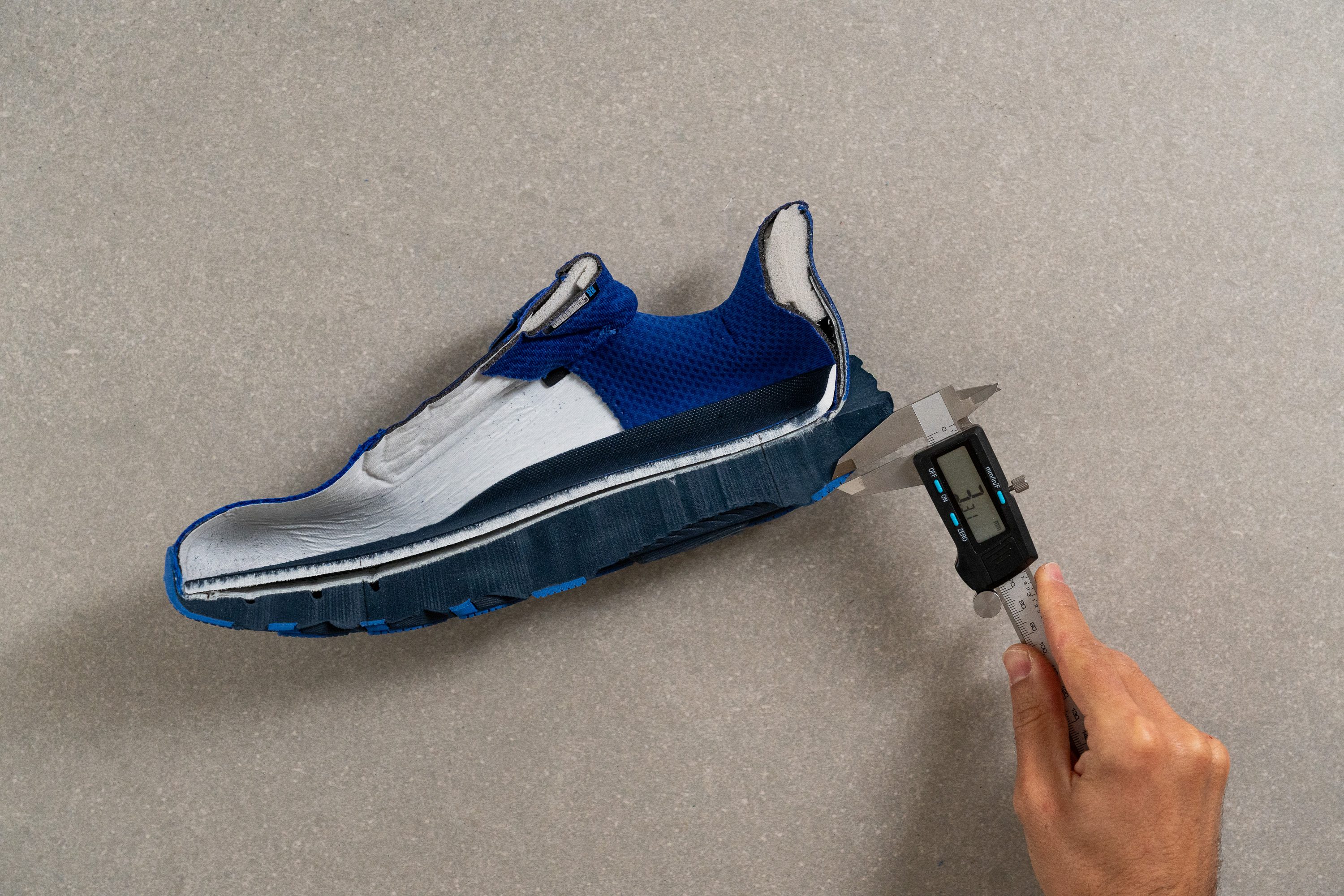
| Hoka Clifton 9 GTX | 3.3 mm |
| Average | 3.2 mm |
Misc
Insole thickness
The insole, at 4.8 mm thick, is a bit thicker than usual but feels perfectly normal. We didn't have any problems with it and found it quite comfortable.
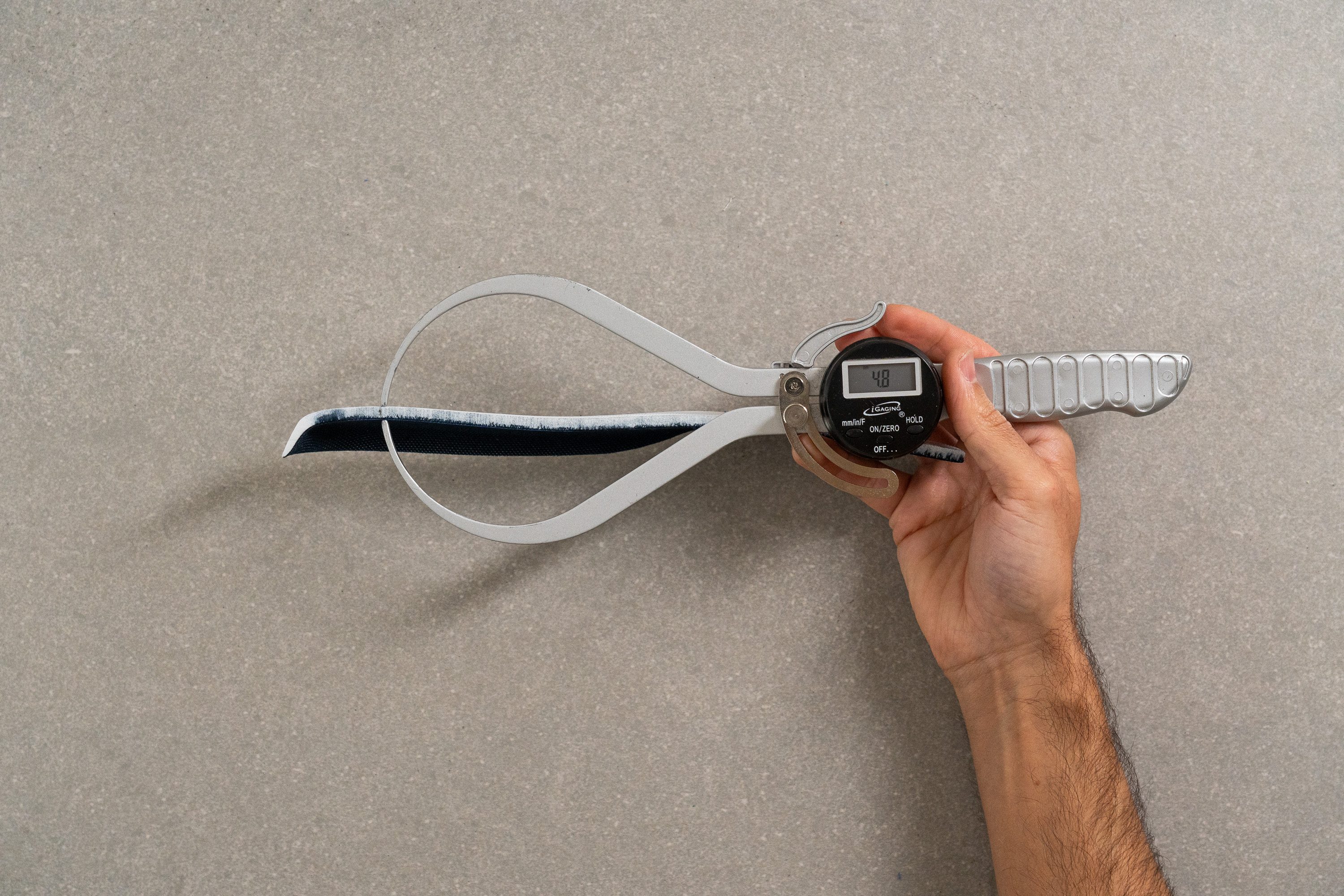
| Hoka Clifton 9 GTX | 4.8 mm |
| Average | 4.5 mm |
Removable insole
The insole is completely removable, allowing you to insert your own orthotics or maybe your favourite insole from another running shoe.
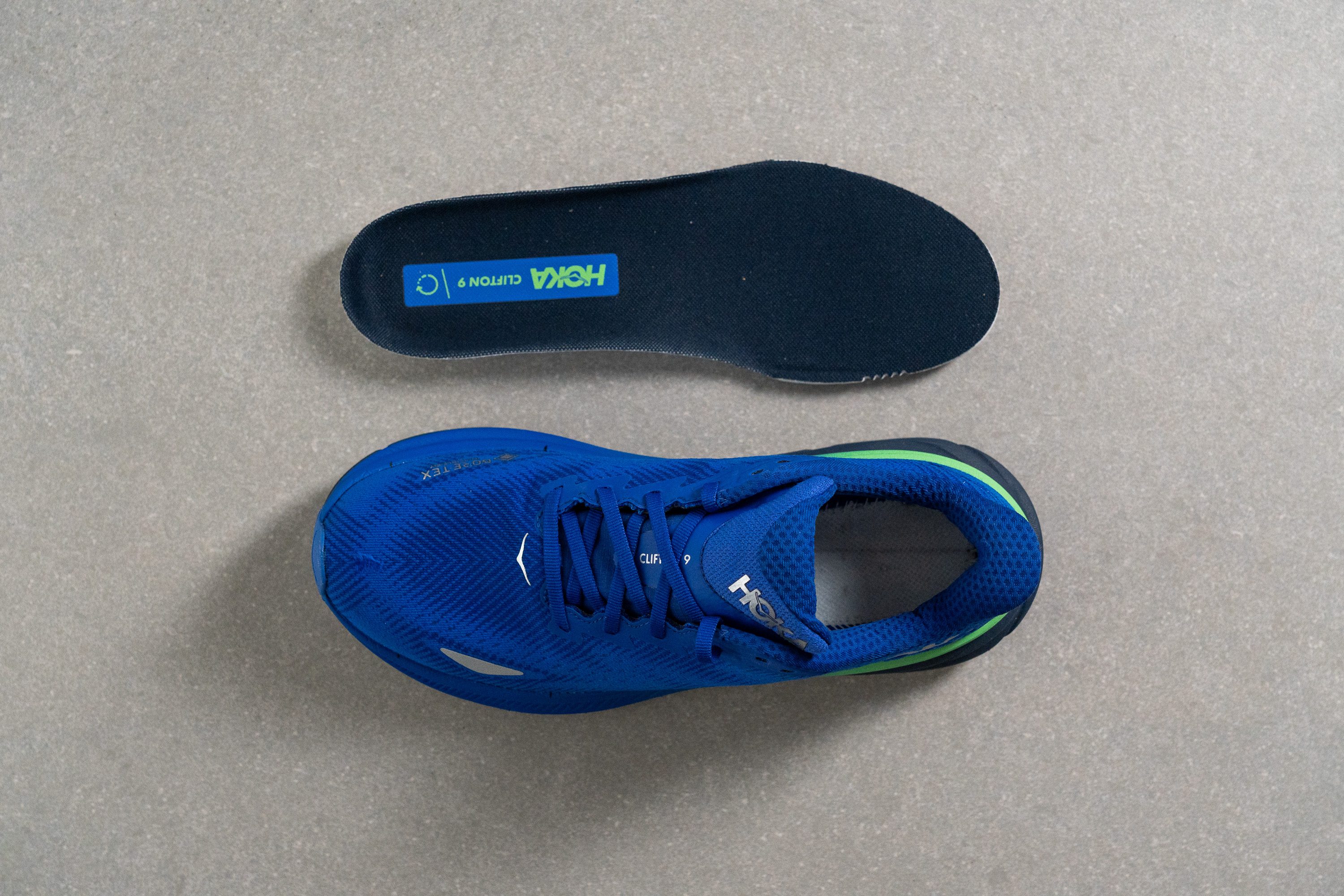
| Hoka Clifton 9 GTX | Yes |
Midsole softness in cold
After placing the shoe in the freezer for 20 minutes to simulate cold conditions, our Shore A durometer recorded a hardness of 27.8 HA.
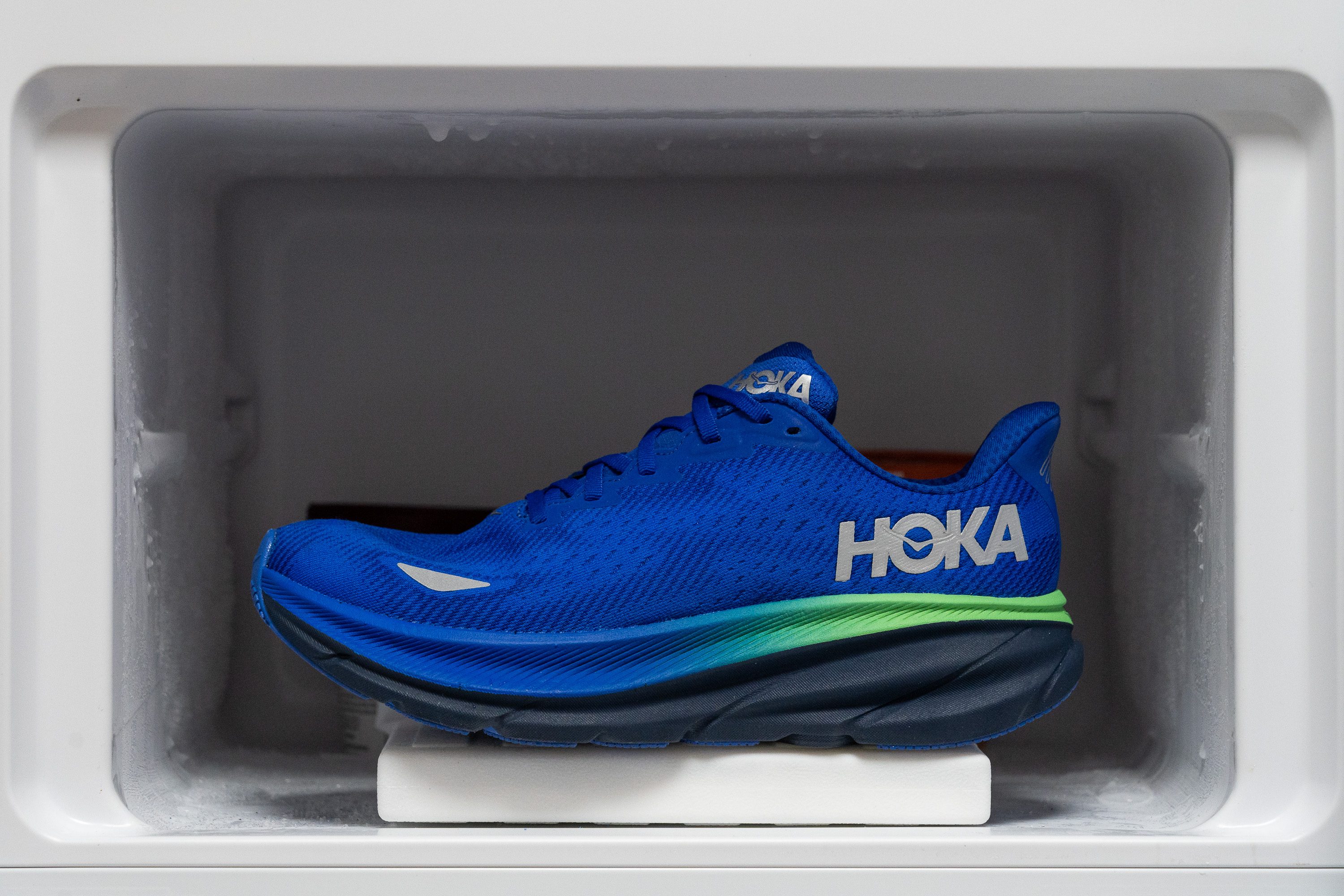
| Hoka Clifton 9 GTX | 27.8 HA |
| Average | 25.0 HA |
Midsole softness in cold (%)
That's only a 16.1% increase, a fantastic result for an EVA-based midsole. This is especially important since, as a Gore-Tex edition, this shoe is designed for winter running.
You definitely don't want it to turn into a brick under your feet in cold conditions, and thankfully, it stands up well to the challenge.
| Hoka Clifton 9 GTX | 16% |
| Average | 24% |
Reflective elements
We're big fans of reflective elements on winter-running shoes, as they're essential for those who often run in nighttime conditions. But what really excites us is 360-degree reflectivity, and that's exactly what the Clifton 9 GTX offers.
| Hoka Clifton 9 GTX | Yes |
Tongue padding
The Clifton 9 GTX boasts 7.4 mm of padding in the tongue, ensuring comfort during even the longest runs.
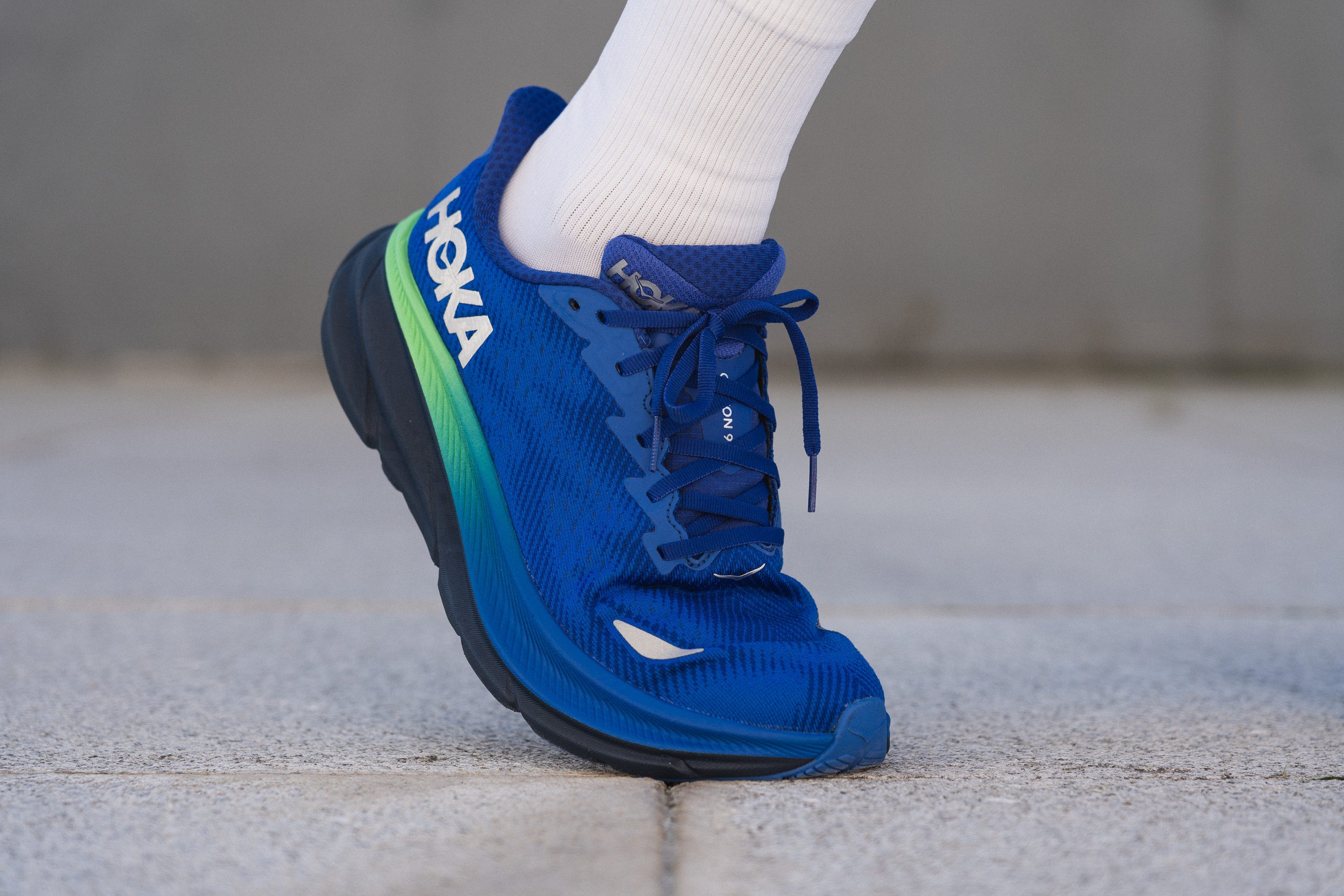
This is also a key benefit for those who prefer to tie their laces really tight, a common practice in wet conditions.
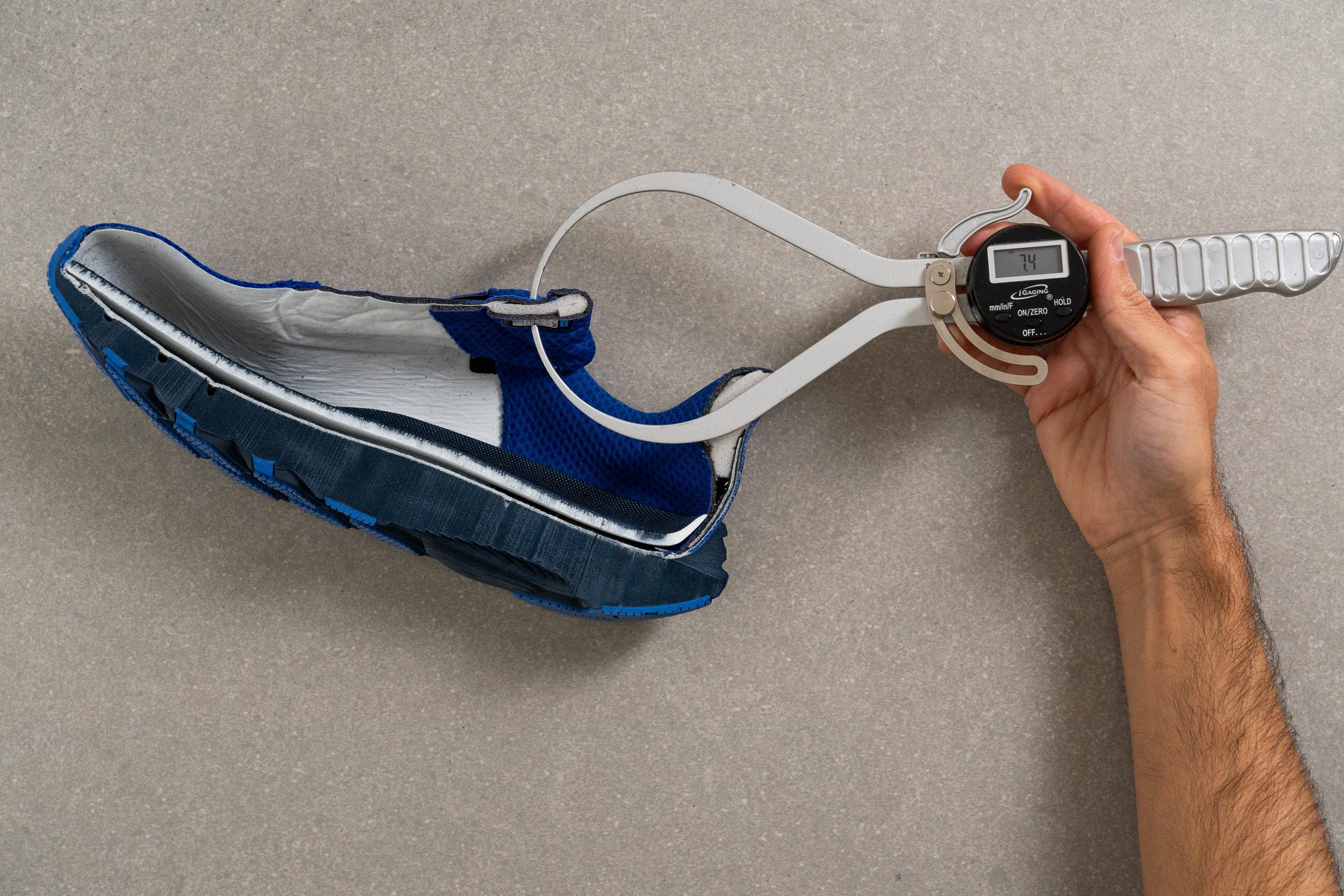
| Hoka Clifton 9 GTX | 7.4 mm |
| Average | 5.7 mm |
Tongue: gusset type
The standard Clifton 9 comes with the classic Hoka semi-gusseted tongue. However, that's not ideal for a waterproof shoe.
That's why we were thrilled to discover in our lab that this model has been upgraded to a fully gusseted tongue. This is definitely great news!
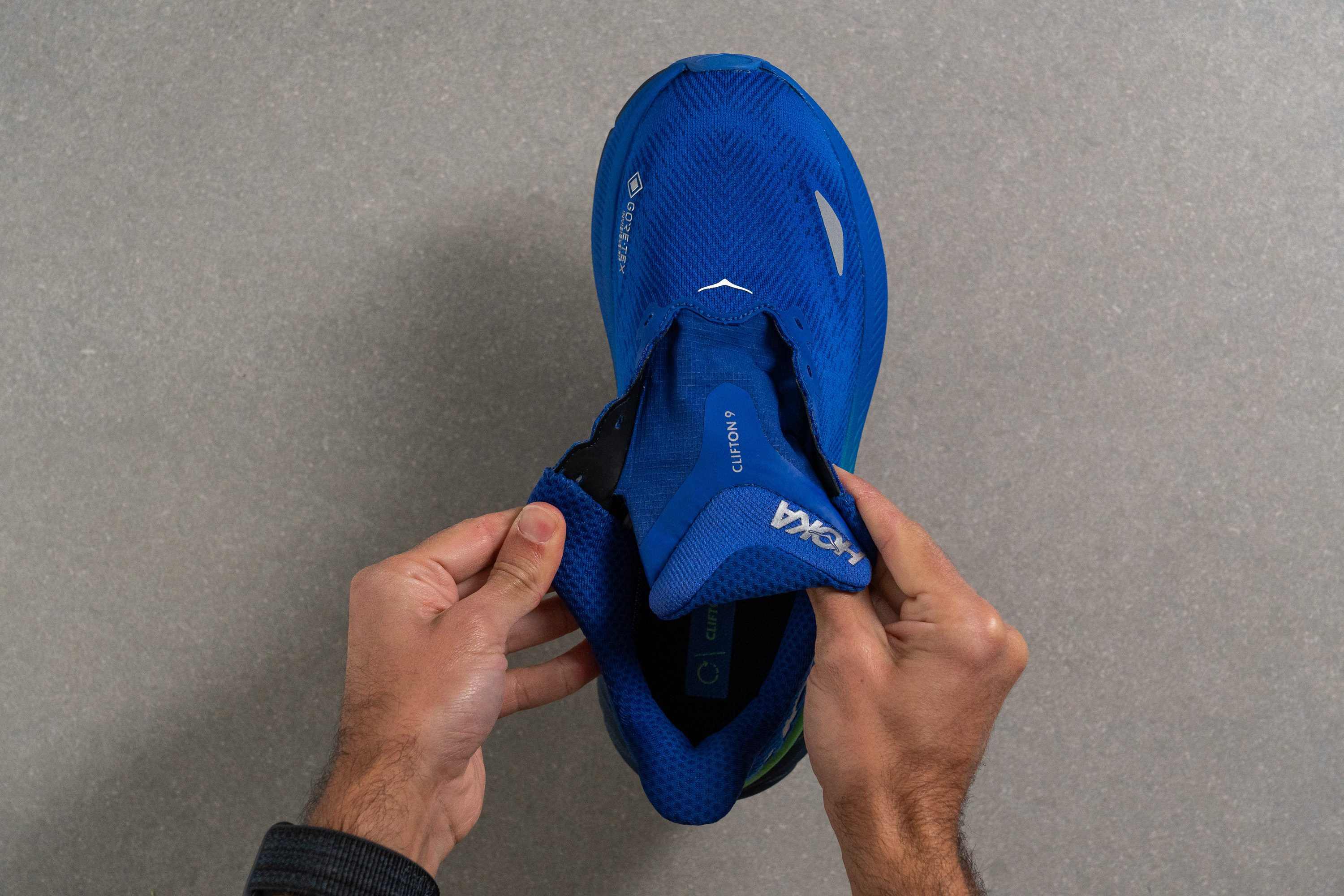
| Hoka Clifton 9 GTX | Both sides (full) |
Heel tab
Hoka omitted the heel tab in this version of the Clifton, adding only a small tail to the heel. However, we can't really classify it as a pull tab, it's just a extended collar.
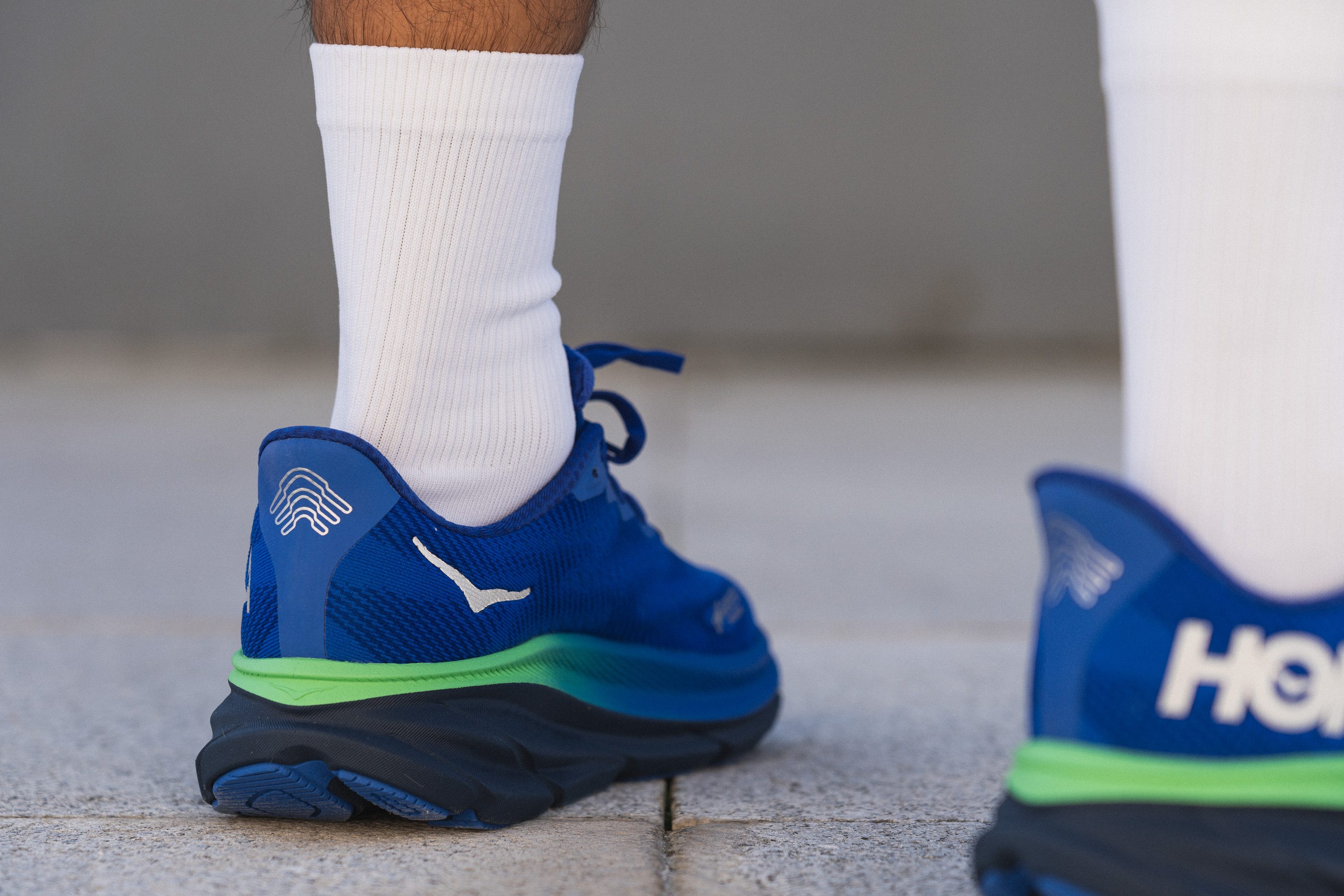
| Hoka Clifton 9 GTX | None |

